
- Majors & Careers
- Online Grad School
- Preparing For Grad School
- Student Life

Top 10 Best PhD Programs in Georgia [2024]

Georgia is home to several prestigious universities and learning centers. Atlanta, the capital and state’s most populous city, boasts the world’s busiest airport, where international students arrive every year to study at the city’s renowned universities.
Additionally, Atlanta boasts one of the country’s prestigious technological institutions, the Georgia Institute of Technology, and the famous Emory University. The latter has a teaching hospital renowned for its work in specializations like cancer, neurology, heart surgery, and many other medical specialties.
Georgia’s universities are well-equipped across diverse disciplines, from business administration and information technology to agricultural economics, criminal justice, and epidemiology. You can even find an online PhD in Georgia in all these fields.
Ready to obtain your PhD in Georgia? Here are the top PhD programs in Georgia in some of today’s most in-demand disciplines.
Table of Contents
Top PhD Programs in Georgia
Georgia institute of technology.
Bioengineering, PhD

Georgia Institute of Technology (Georgia Tech), is the state’s leading technology institution and home to some of the country’s top industrial programs. This Bioengineering PhD is among the most innovative and integrative doctoral programs in Georgia, ranked #2 in the USA. A highly interdisciplinary program, it offers students the flexibility to learn with faculty from various departments, including engineering, architecture , and computing, and Emory University’s School of Medicine.
- Courses : Engineering fundamentals, bioengineering & tech elective, and biological sciences.
- Credits : 33 hours
- Duration : 5 years
- Delivery : On-campus
- Tuition : $756 per hour
- Financial aid : Fellowships, loans, and federal work-study.
- Acceptance rate: 21%
- Location : Atlanta, Georgia
The University of West Georgia, Department of Counseling, Higher Education, and Speech-Language Pathology
Doctor of Education in Higher Education Administration

The University of West Georgia is one of the country’s 25 most affordable institutions for online doctorates. It offers one of the most affordable education doctorate programs in Georgia.
This PhD in Education focuses on higher education challenges and solutions. It helps students gain advanced knowledge of administration, financial management, and leadership in colleges and universities . This is a top, fully online PhD program Georgia offers, which is ideal for busy working professionals.
- Courses : History of higher education, governance in higher education, and institutional assessment & program effectiveness.
- Credits : 60
- Delivery : Online
- Tuition : $241 per credit
- Financial aid : Grants, scholarships, federal work-study, and loans.
- Acceptance rate : 78%
- Location : Carrollton, Georgia
Kennesaw State University, Coles College of Business
PhD in Business Administration

Kennesaw State University is the third-largest university in the state and has two campuses in metro Atlanta. It has global connections and an entrepreneurial spirit that attracts students from worldwide. This program allows students to complete their studies in as little as three years. This Business Administration program offers four concentrations: accounting, management, information systems , and marketing.
- Courses : Research methods & basic data analysis, analysis of variance designs, and theory & current issues in marketing.
- Credits : 48 credit hours
- Duration : 3 years +
- Tuition + deposit : $96,500
- Financial aid : Grants, scholarships, and loans.
- Acceptance rate : 83%
- Location : Marietta, Georgia
Middle Georgia State University, School of Computing
Doctor of Science in Information Technology (DScIT)

Middle Georgia State University is a central Georgia institution that produces many IT professionals, positively impacting the region’s economy. This DScIT program is one of the most job-promising online PhD programs Georgia offers, and complements the university’s undergraduate and master’s IT programs.
- Courses : Information technology strategic planning, data science & analytics strategy, and qualitative analysis for decision making.
- Credits : 54 hours
- Duration : 2 years +
- Delivery : Online mostly
- Tuition : $255 per credit hour
- Financial aid : Grants, scholarships, loans, and work-study.
- Acceptance rate: 99%
- Location: Macon, Georgia
Emory University, Rollins School of Public Health
Ph.D. in Epidemiology

Emory University is one of the leaders in epidemiology study. It’s famous for its role in discovering solutions and treatments for diseases of global concern, including HIV, hemophilia, cancer, and COVID-19. As part of this program, students must participate in the TATTO (Teaching Assistant Training and Teaching Opportunities) scheme, which involves an orientation in teaching skills in the field. Students also receive ethics training through the Jones Program in Ethics.
- Courses : Epidemiologic methods, analytical foundations of epidemiology, and public health research .
- Credits : 45
- Tuition : $22,900 per semester
- Financial aid : Scholarships, fellowships, and loans.
- Acceptance rate : 19%
Augusta University, The College of Allied Health Sciences
Doctor of Philosophy in Applied Health Sciences

Augusta University’s different campuses are spread over various parts of Augusta, the second-largest and second-oldest city in Georgia. The institution comprises ten schools and colleges and houses the Medical College of Georgia. This Ph.D. program in Allied Health Sciences offers a choice between three concentrations: rehabilitation science, health outcomes science, and diagnostic science.
- Courses : Learning theories in health professions education, investigation of a problem, and biostatistics.
- Credits : 72 hours
- Tuition : $391 (up to 11 hours)
- Financial aid : Scholarships, loans, grants, work-study
- Acceptance rate: 83%
- Location : Augusta, Georgia
The University of Georgia, College of Agricultural and Environmental Sciences
PhD in Agricultural and Applied Economics

The University of Georgia is one of the nation’s top public universities and the oldest higher education institution in Georgia. The university offers various agriculture and environment-related programs, with this PhD being one of the best. In addition, it has five research specializations, including agricultural marketing & consumer demand, production economics, and international trade & development.
- Courses : Natural resource economics, food policy, and consumer demand theory.
- Credits : 63 hours
- Tuition : $8,698 per year
- Financial aid : Fellowships, assistantships, grants, scholarships, and loans.
- Acceptance rate : 48%
- Location : Athens, Georgia
Georgia Southern University
Clinical Psychology, PsyD

Georgia Southern University is recognized as a military-friendly school committed to providing education to mature-aged students and working professionals returning to study. This PsyD program in Clinical Psychology emphasizes psychotherapy, clinical consultation, and assessment. You can study either full- or part-time.
- Courses : Psychotherapy skills, psychopharmacology, and ethics & professional issues.
- Credits : 114-124 credit hours
- Tuition : $277 per hour
- Financial aid : Grants, scholarships, student employment, and loans.
- Acceptance rate: 91%
- Location : Statesboro, Georgia
Georgia State University, Andrew Young School of Policy Studies Programs
PhD Criminal Justice & Criminology

Georgia State University is one of the country’s most innovative universities. This PhD program focuses on Criminal Justice and Criminology, and aims to produce professionals with in-depth knowledge in one of the two specializations. Bachelor’s degree holders are eligible to apply, but must complete 72 credit hours compared to 54 credit hours for master’s degree holders.
- Courses : Contemporary criminal justice policy, independent study in criminal justice, and juvenile justice issues.
- Credits : 54 credit hours
- Tuition : $4,776 per semester
- Financial aid : Graduate assistantships, fellowships, scholarships, stipend, and full tuition waiver.
- Acceptance rate : 82%
Columbus State University
Curriculum and Leadership (EdD) – Curriculum Track

Columbus State University is one of the nation’s most affordable higher education institutions. This education program offers three specialization tracks: curriculum, higher education administration, and educational leadership. It is ideal for professional educators, education district personnel, and educational administrators looking to further their curriculum and instruction expertise.
- Courses : Mixed methods research in education, professional development & learning, and trends & issues in curriculum studies.
- Credits : 63
- Delivery : Hybrid
- Tuition : $210 per credit hour
- Financial aid : Scholarships, grants, loans, work-study, military aid, and international study aid.
- Location : Columbus, Georgia
Key Takeaways
Georgia is a popular educational destination for in-state, out-of-state, and international students around the world. Apart from offering excellence in education, many of the state’s universities also strongly promote diversity and anti-discrimination.
You’ll find a range of solid PhD programs in Georgia across various disciplines and with various delivery modes. If you’re a busy working professional, opt for one of the online PhD programs in Georgia or a hybrid format with a mix of online instruction and face-to-face classes.
For more study inspiration, check out our guides to the cheapest online master’s degrees , top online PhD programs , and highest paying PhDs .

Lisa Marlin
Lisa is a full-time writer specializing in career advice, further education, and personal development. She works from all over the world, and when not writing you'll find her hiking, practicing yoga, or enjoying a glass of Malbec.
- Lisa Marlin https://blog.thegradcafe.com/author/lisa-marlin/ 12 Best Laptops for Computer Science Students
- Lisa Marlin https://blog.thegradcafe.com/author/lisa-marlin/ ACBSP Vs AACSB: Which Business Program Accreditations is Better?
- Lisa Marlin https://blog.thegradcafe.com/author/lisa-marlin/ BA vs BS: What You Need to Know [2024 Guide]
- Lisa Marlin https://blog.thegradcafe.com/author/lisa-marlin/ The 19 Best MBA Scholarships to Apply for [2024-2025]
5 Tips For An Amazing Video Interview
Top 12 best laptops for graduate students in 2024, related posts.

- Grad Trends: Interest in Artificial Intelligence Surges

- Breaking Records: Yale Sees Most Selective Grad Admissions Season Yet

- Applying to Big Tech This Year? Here’s How to Ace It.

- 12 Best Laptops for Computer Science Students

- Is a Master’s Degree Worth It? [2024 Guide]

73% of job seekers believe a degree is needed for a well-paying role–but is it?

Leave a Reply Cancel reply
Your email address will not be published. Required fields are marked *
Save my name, email, and website in this browser for the next time I comment.
Recent Posts

© 2023 TheGradCafe.com All rights reserved
- Partner With Us
- Results Search
- Submit Your Results
- Write For Us
30 Fully Funded Ph.D. Programs
These fully funded Ph.D. programs are in fields like business, computer science, education and nursing.

(Getty Images) |
Many Ph.D. programs are fully funded.
Students interested in graduate research in various fields, from public health and English to computer science and engineering, have numerous options for Ph.D. programs that offer full funding. These programs typically provide waived tuition and fees and an annual stipend. Some also offer health insurance and other benefits. Gaining admittance into these small cohorts can be highly competitive, and the programs can be time-consuming . Here are 30 fully funded Ph.D. programs at U.S. colleges and universities. Keep in mind this is not a comprehensive list – there are others out there.

- Ph.D. in anthropology at the University of Chicago
Anthropology Ph.D. students at the University of Chicago can receive funding for up to eight years of study, assuming they are in good standing at the university. During that time, they will receive a full-tuition scholarship plus health insurance and a living stipend – which equated to $33,000 for the 2022-2023 school year – and can apply for external fellowships.

Ph.D. in biological sciences in public health at Harvard University (MA)
Harvard University's T.H. Chan School of Public Health in Boston offers a Ph.D. in biological sciences in public health that aims to provide students with expertise in disease prevention and treatment. This program includes tuition, a stipend and health insurance for five years as long as the student maintains satisfactory academic progress. International students receive the same benefits. Current research in the school's laboratories involves diseases like AIDS, cancer, diabetes, kidney disease, malaria and tuberculosis.

(Dominick Reuter) |
- Ph.D. in business at Massachusetts Institute of Technology
Students enrolled in the Sloan School of Management at the Massachusetts Institute of Technology can study a range of fields like organization studies, accounting and information technology. Those pursuing a Ph.D. will receive a full-tuition scholarship plus a monthly stipend of $4,267, capped at $51,204. They will also receive medical insurance, new laptops at the beginning of their first and fourth years of study and $4,500 over five years for conference travel expenses.

(Tommy Lavergne | Rice University)
Ph.D. in business at Rice University (TX)
At the Rice University Jones Graduate School of Business in Texas, students enjoy full financial assistance upon admission to the Ph.D. program. Aiming to prepare students to teach in fields like accounting, finance, organizational behavior and strategic management, the program provides students with a research or teaching assistantship. Students receive a tuition waiver and a $40,000 annual stipend contingent on making satisfactory academic progress and maintaining full-time student status.

Office of Strategic Communication | University of Iowa
- Ph.D. in business at the University of Iowa
The University of Iowa's Tippie College of Business offers Ph.D. degrees in fields such as accounting, economics, business analytics and marketing. The college says it provides full funding to "virtually all admitted students." This includes tuition and fees, a minimum nine-month stipend of about $20,000 with annual adjustments and comprehensive health insurance covered at 90%. Some departments offer funding for research presentations at major conferences, summer fellowships and paid time off for independent research.

Ph.D. in chemical engineering at Cornell University (NY)
According to Cornell University 's website, all students admitted to the chemical engineering Ph.D. program at the New York school receive a full tuition waiver, health insurance and a stipend. This funding can come from a teaching assistantship, research assistantship or fellowship, and full stipends are granted for nine months with the likelihood of additional aid in the summer.

Chris Taggart | Columbia University
Ph.D. in clinical psychology at Columbia University (NY)
Students enrolled in Columbia University 's Ph.D. program in clinical psychology at the Teachers College in New York receive fully funded tuition and a $25,000 stipend annually for three years. The stipend also carries into a student's fourth year. These doctoral fellows "may be expected to serve" as graduate teaching or research assistants. Students typically complete the mentor-matched program, which includes a full-year internship, in five to seven years.

Ph.D. in computer science at Brown University (RI)
Brown University 's Ph.D. students in computer science have access to "full financial support while completing the degree," plus the option to take classes at nearby schools without incurring additional costs, according to the school's website. In fact, doctoral students in any program at the Rhode Island university are guaranteed five years of financial support, which includes tuition remission, a stipend, health services fees and a subsidy for health insurance.

Georgetown University |
Ph.D. in computer science at Georgetown University (DC)
Georgetown University 's Ph.D. program in computer science provides scholarships and assistantships that cover full tuition at the Washington, D.C., school and include a stipend and health insurance for the first five years. Once enrolled in the program, students must complete the Apprenticeship in Teaching Program and ultimately write and defend a full research dissertation in a seminar open to the public.

Ph.D. in computer science at Washington University in St. Louis
Ph.D. students in the computer science or computer engineering program at Washington University in St. Louis receive full tuition support and health insurance. According to the university's website: "As a doctoral candidate, you will also receive a generous stipend to cover living expenses and a new, high-end Apple laptop computer. This support is guaranteed as you continue to make satisfactory progress towards your degree." Doctoral students may also qualify for one of three fellowships.

Jeff Miller | UW-Madison
- Ph.D. in counseling psychology at the University of Wisconsin—Madison
Incoming Ph.D. students at the School of Education at the University of Wisconsin—Madison are guaranteed full funding for the duration of the time that they are expected on campus, according to the university's department of counseling psychology website. Doctoral students also receive a benefits package that includes health insurance. Funding may come from financial aid, fellowships, assistantships and/or traineeships.

Emory University |
Ph.D. in economics at Emory University (GA)
Students enrolled in the economics Ph.D. program at Emory University typically receive full funding, according to the Georgia university's website. The stipend provided to students is $36,376 per year for five years, starting in fall 2023, and the full tuition scholarship is worth $70,200 per year. Funding for admitted students also includes a $4,370 annual subsidy that covers 100% of a student's cost of health insurance. First-year students have no stipend-related work requirements.

- Ph.D. in education at New York University
New York University's Steinhardt School of Culture, Education, and Human Development offers more than 30 degree programs. Many can be pursued on campus or online. Ph.D. degrees are offered in areas like developmental psychology, educational leadership and childhood education. Full-time NYU Steinhardt Ph.D. students are eligible for a funding package that includes an annual stipend – $32,000 for the 2022-2023 academic year – tuition coverage for required coursework and student health insurance for five years.

L.A. Cicero, Stanford News Service |
Ph.D. in education at Stanford University (CA)
Stanford University's Graduate School of Education allows students numerous fellowship and assistantship opportunities at the California school, along with a "five-year funding guarantee that provides tuition aid, fellowship stipend, and assistantship salary, and covers the standard cost of attendance," the program website reads. At the Graduate School of Education, doctoral students can choose from a range of academic areas like curriculum studies and teacher education, and developmental and psychological sciences.

- Ph.D. in education at the University of Pennsylvania
The University of Pennsylvania Graduate School of Education provides full funding to Ph.D. students as part of a fellowship and research apprenticeship package. This funding includes a living stipend, health insurance and coverage of tuition and fees for up to four years if the student maintains full-time enrollment. Some students may also qualify for additional summer funding.

- Ph.D. in engineering at the University of Michigan—Ann Arbor
Doctoral students in engineering at the University of Michigan—Ann Arbor can choose from numerous areas of specialization under umbrella categories like aerospace engineering, biomedical engineering, macromolecular science and engineering, and robotics. All engineering doctoral students are guaranteed full funding, a monthly living stipend and health insurance. The exact amount can vary, according to the program's website, and funding comes from a range of sources, including graduate student instructor positions and fellowships.

Boston University Photography |
- Ph.D. in English at Boston University
Annually, doctoral students studying English at Boston University receive a stipend plus full tuition, fees and basic health insurance. This funding is guaranteed for at least five years, with two of those years typically free from teaching requirements. Funding can sometimes be extended up to seven years, according to the university's website, but it's not guaranteed. Students may also apply for various prizes, fellowships and short-term research and travel grants.

(Stephanie Diani) |
- Ph.D. in English at the University of California—Los Angeles
Applicants to the Ph.D. in English program at the University of California—Los Angeles are automatically considered for various funding options. A six-year funding package includes "a minimum of two years of full fellowship, four years of summer stipend support and up to four years of teaching assistantships," according to the school website. Beyond tuition, fees and health insurance are also covered.

Jeff Watts |
Ph.D. in international relations at American University (DC)
American University offers doctoral students in its international relations program who do not have external funding a renewable four-year Dean's Fellowship that is contingent on making satisfactory academic progress. The fellowship includes the cost of tuition, fees and a stipend that must be earned via a part-time role as a teaching or research assistant. Students also must "demonstrate competency in a modern foreign language" before graduating.

Jonathan Cohen | Binghamton University
- Ph.D. in management at Binghamton University—SUNY
All students admitted to the interdisciplinary management Ph.D. program at the Binghamton University—SUNY School of Management in New York receive a combination of a full-tuition scholarship and a teaching or research assistantship for each academic year, up to four years. This STEM-designated business doctoral degree prepares students for careers in academia and work in the public and private sectors, and has a student-faculty ratio of 1-to-1, according to the university's website.

Duke University Communications |
Ph.D. in materials science and engineering at Duke University (NC)
Doctoral students at Duke University in North Carolina studying materials science and engineering generally receive full tuition, a stipend and fee support for the first five years. Students also receive up to six years of health insurance if they are on the university's student medical insurance plan. The doctoral program aims to help students publish with a faculty adviser and develop research skills, with the opportunity to present research at professional conferences.

Homewood Photography | JHU
Ph.D. in nursing at Johns Hopkins University (MD)
The School of Nursing at Johns Hopkins University in Maryland provides most doctoral students with three fully funded years of study. Available financial aid includes graduate assistantships, targeted fellowships and nursing-specific funding. The university aims to "advance the theoretical foundation of nursing practice and healthcare delivery" with the degree, its website reads. "By graduation, most Hopkins nurse scholars have been awarded grants that continue their research and set them well on their way to a successful career."

- Ph.D. in nursing at the University of Virginia
All students admitted to the University of Virginia 's Ph.D. in Nursing program are eligible for four years of scholarship funding to cover tuition, insurance and fees, as well as annual stipends. To receive certain aid, students must work 10 hours per week as a graduate teaching assistant. With a heavy research focus, students can expect courses in qualitative, quantitative and historical research, and will have to submit a research proposal for peer review.

Ph.D. in nursing at Yale University (CT)
At Yale University in Connecticut, the School of Nursing offers full funding to its Ph.D. students. They receive a monthly stipend for four years in addition to paid tuition and health care. The program allows students to gain in-depth knowledge in a particular area of study. Every incoming Ph.D. student gets paired with a faculty adviser "whose area of expertise and active research most closely matches with the student’s scholarly interest," according to the school's website.

University of Minnesota |
- Ph.D. in psychology at the University of Minnesota—Twin Cities
Students admitted to the Ph.D. program to study psychology at the University of Minnesota—Twin Cities are guaranteed full funding for five years as long as they maintain satisfactory performance and degree progress. This funding includes full-time tuition, a nine-month stipend and subsidized health insurance. Funding comes from some combination of teaching assistantships, traineeships, research assistantships and fellowships. Students in the program can specialize in areas like cognitive and brain sciences, industrial-organizational psychology and social psychology.

Matt Cashore | University of Notre Dame
Ph.D. within the Romance languages and literatures department at the University of Notre Dame (IN)
University of Notre Dame doctoral students who focus on French and Francophone studies, Iberian and Latin American studies or Italian studies are guaranteed five years of funding. Funding includes a full scholarship, including tuition and fees, plus a stipend and health insurance. Anyone who completes the Ph.D. degree requirements at the Indiana university within five years will automatically receive a one-year postdoctoral fellowship via the university's 5+1 Program. Fellows will have a teaching load limited to one course per semester.

Ph.D. in social work at Bryn Mawr College (PA)
Students admitted to Bryn Mawr College 's Ph.D. program in social work receive full tuition waivers and "substantial stipends" toward living expenses. The Pennsylvania college's website says: "Consistent with our model, all Ph.D. students are funded equally, and do not compete for basic financial support during coursework." The program's cohorts typically include only three or four students each year. According to the college, it awarded the first Ph.D. degree in social work in the U.S. in 1920.

Vanderbilt University |
Ph.D. in special education at Vanderbilt University (TN)
Funding is guaranteed for all admitted doctoral students enrolled in the special education Ph.D. program at the Peabody College of Education and Human Development at Vanderbilt University in Tennessee. This includes full tuition, a "competitive" monthly stipend and health insurance for up to four years. Students may also be nominated for additional honor scholarships and fellowships. Areas of focus within the Ph.D. program include high-incidence disabilities and early childhood education.

Ph.D. in theatre and drama at Northwestern University (IL)
This interdisciplinary Ph.D. program at Northwestern University in Illinois combines coursework in humanities, social science and the visual arts. The program's students receive a five-year full-tuition scholarship plus an annual living stipend. Ph.D students enrolling at this program in fall 2022 will receive a living stipend of at least $36,960 during the 2023-2024 school year. Stipend amounts may change from year to year. Students can apply for subsidies to facilitate conference travel and summer language study.

(Photo by Sarah L. Voisin | The Washington Post via Getty Images)
- Ph.D. in women, gender and sexuality studies at University of Maryland
At the University of Maryland 's Harriet Tubman Department of Women, Gender and Sexuality Studies, Ph.D. students without a master's degree usually have five years of guaranteed funding. Those with a master's degree usually are funded four years, with awards stemming from a mix of departmental fellowships and graduate teaching assistantships. Since the program's establishment in 1999, the department has granted 36 Ph.Ds, according to UMD's website.

Learn more about paying for graduate school.
Finding a fully funded program isn't the only option to offset the costs of graduate school. See these seven strategies to pay for graduate school to learn more. Check out the latest Best Graduate Schools rankings to see the country's top business, medicine and law programs – and more. For additional grad school tips, follow U.S. News Education on Facebook , Twitter and LinkedIn .

Ph.D. programs that are fully funded
- Ph.D. in biological sciences in public health at Harvard University
- Ph.D. in business at Rice University
- Ph.D. in chemical engineering at Cornell University
- Ph.D. in clinical psychology at Columbia University
- Ph.D. in computer science at Brown University
- Ph.D. in computer science at Georgetown University
- Ph.D. in computer science at Washington University—St. Louis
- Ph.D. in economics at Emory University
- Ph.D. in education at Stanford University
- Ph.D. in international relations at American University
- Ph.D. in materials science and engineering at Duke University
- Ph.D. in nursing at Johns Hopkins University
- Ph.D. in nursing at Yale University
- Ph.D. within the romance languages and literatures department at the University of Notre Dame
- Ph.D. in social work at Bryn Mawr College
- Ph.D. in special education at Vanderbilt University
- Ph.D. in theatre and drama at Northwestern University
More From U.S. News

Grad Degree Jobs With $100K+ Salaries

3 Ways Graduate School Pays Off

Best and Worst Reasons for Grad School
You may also like, premeds and emerging medical research.
Zach Grimmett May 14, 2024

How to Get a Perfect Score on the LSAT
Gabriel Kuris May 13, 2024

Premeds Take 5 Public Health Courses
Rachel Rizal May 7, 2024

Fortune 500 CEOs With a Law Degree
Cole Claybourn May 7, 2024

Why It's Hard to Get Into Med School
A.R. Cabral May 6, 2024

Pros, Cons of Unaccredited Law Schools
Gabriel Kuris May 6, 2024

An MBA and Management Consulting
Sammy Allen May 2, 2024

Med School Access for Minority Students
Cole Claybourn May 2, 2024

Different jobs with med degree
Jarek Rutz April 30, 2024

Completing Medical School in Five Years
Kate Rix April 30, 2024


PhD in Economics

Program Overview
The PhD program in Economics provides in-depth, rigorous training in the theory and application of microeconomics, macroeconomics, and econometrics. Entering students aim for research and teaching careers in academia or research-oriented positions in government, consulting, or private industry. Faculty members work closely with PhD students, generating a collaborative, stimulating intellectual environment.
Graduate Coordinator

- Associate Professor , John Munro Godfrey, Sr. Department of Economics
Preferred Deadline: January 15
The basic coursework is usually completed in the first two years. During the first year, students take core courses in microeconomics, macroeconomics, econometrics, and research methods. The second year is devoted to field courses, and students begin to develop their own research ideas through this coursework. Students’ independent research begins in the summer after the second year when they begin working on their “second-year” paper, which is typically the first step in building a dissertation. After the second year, students also have the opportunity to teach their own class, building additional core knowledge and developing important classroom skills.
Beyond the second year, students are strongly encouraged to attend our weekly seminar series and participate in brown bag lunch and reading groups. There is ample opportunity to present ongoing research both to obtain critical feedback and develop important presentation skills.
Students are required to complete three fields of specialization, one of which must be econometrics. The department offers fields in advanced macroeconomics, industrial organization, health economics, and labor economics. Please visit our faculty directory for additional insight into the research focus within our department.
Program Structure
To earn a PhD a student must:
- Complete a minimum of 54 semester hours of course work, including required courses in micro and macroeconomic theory, econometrics and research skills.
- Pass two out of three written comprehensive (core) exams in microeconomic theory, macroeconomic theory, and econometrics in their first summer (at the end of their first year).
- Complete three fields of specialization, including one in econometrics.
- Complete a second-year paper assignment.
- Complete a Thesis Committee Form, which is typically done by the fall of your third year and must be done before your oral examination.
- Complete a Final Program of Study Form. This is typically done by the fall of your third year and must be done before your oral examination.
- Pass the Oral Examination by the end of your third year. Once you pass your oral examination and complete the Admission to Candidacy Form you will be formally admitted into candidacy.
- Present your research in the department’s seminar series.
- Write and defend an acceptable dissertation.
Course Work
Students enrolled in the PhD program in Economics are required to complete a set of core and selected field courses of specialization. The core curriculum consists of courses in mathematical economics ( ECON 8000 ), microeconomic theory ( ECON 8010 and 8020 ), macroeconomic theory ( ECON 8040 and 8050 ), statistical methods ( ECON 8070 ) and introductory econometrics ( ECON 8080 ).
In addition, to satisfy the university’s research skills requirement, students must attend the workshops and seminars sponsored by the department ( ECON 8980 ), and successfully complete Research Methods in Economics ( ECON 8090 ). The research methods course requires students to write a research paper to be presented in the department’s summer workshop series.
Students are required to complete three fields of specialization, one of which must be econometrics. To earn credit for this sequence you must take at least two of three advanced econometrics courses ( ECON 8110 , 8120 , and 8130 ). At least one of the two elective fields must be from courses offered by the John Munro Godfrey, Sr. Department of Economics. Besides econometrics, the department offers fields in advanced macroeconomics, industrial organization, health economics, and labor economics. With permission of the department’s graduate coordinator, students can satisfy one of the elective fields through course work in a related department, such as finance. A field is completed after passing two courses in an area of specialization with a minimum average grade of 3.0.
Written Preliminary Examinations
At the end of the first year, students are expected to have completed the Micro Theory ( ECON 8010 and ECON 8020 ) and Macro Theory ( ECON 8040 and ECON 8050 ) sequences and to take the Micro Theory and Macro Theory core exams. These theory core exams are given in June after the first year. Students who do not pass may retake the exam(s) later in the summer. Students must pass both exams during the summer after their first year in the program to maintain satisfactory academic progress towards their degrees.
Research Focus
An intensive introduction to the process of doing economic research typically begins in the fall of students’ second year when they take the Research Methods Course. The class is designed to help students transition from coursework to research and ultimately to writing their dissertation. The course is designed take students through the process of identifying, developing, and answering a research question. The tools students learned in their first year and are learning in their second are applied to this process under the close supervision of the course instructor.
Students’ development towards becoming independent researchers continues with the second year paper. By the summer after their second year of coursework, students form a second year paper committee and propose a topic for their second year paper. Over the next six months, students work under the supervision of this committee to craft a completed economic research paper. By January of their third year, successful students will have completed a paper having the potential for publication in a scholarly journal.
Progress towards becoming an independent researcher culminates in a student’s dissertation. Students establish a thesis committee during their third year. The completed dissertation must demonstrate original research, independent thinking, scholarly ability and technical mastery. Its conclusions must be logical, its literary form acceptable and its contribution to knowledge should merit publication. Students should establish a thesis committee by the spring of their third year.
Typical Course Sequence
- ECON 8010 Microeconomic Theory I
- ECON 8040 Macroeconomic Theory I
- ECON 8070 Statistics for Econometrics
- ECON 8000 Mathematics for Economists*
- ECON 8020 Microeconomic Theory II
- ECON 8050 Macroeconomic Theory II
- ECON 8080 Introduction to Econometrics
- ECON 8980 Seminar
- Microeconomics Theory Preliminary Exam
- Macroeconomic Theory Preliminary Exam
- Microeconomics Theory Preliminary Exam Retakes
- Macroeconomic Theory Preliminary Exam Retakes
- ECON 8090 Research Methods
- ECON 8110 / 8120 / 8130 Econometrics
- Part one of two field sequences (two courses each) from among the following areas: Health Economics, Industrial Organization, Labor Economics, Macroeconomics.
- GRSC 7770 Graduate Teaching Seminar
- Part two of two field sequences (two courses each) from among the following areas: Health Economics, Industrial Organization, Labor Economics, Macroeconomics.
- Present in Summer Workshop Series
- ECON 8980 Economics Seminar
- ECON 9000 Doctoral Research
Economics PhDs have placed at various prestigious academic institutions.
Placements include tenure-track positions at:
- Baylor University
- Miami (OH) University
- Cleveland State University
- St. Joseph’s University
Post-doctoral positions include:
- Columbia University
- Duke University
- University of North Carolina
Our students have also placed at prominent positions in government and industry, such as:
- the US Food and Drug Administration
- the US Treasury
- The Analysis Group
- PriceWaterhouseCoopers
Admissions and Financial Aid
Individuals holding a four-year baccalaureate degree in any discipline from an accredited institution with a GPA of 3.0 on a 4.0 scale are eligible to apply. Applicants are required to have college credit in differential calculus. Because of the necessary rigor of the curriculum, we also strongly recommend taking courses in integral and multivariable calculus and linear algebra prior to applying.
The General Test of the GRE is required for admission into the program. The GMAT will not be accepted as a substitute for the GRE. All international applicants whose native language is not English and who wish to be considered for financial aid must submit a TOEFL iBT score along with their application, irrespective of their graduating institution. There are no waivers for the TOEFL requirement.
All applicants to the PhD program are automatically considered for financial assistance. The Terry College of Business offers a variety of teaching and research assistantships, scholarships and fellowships. Qualified incoming graduate students are typically offered 9-month (academic-year) teaching or research assistantships from the college, as recommended by the department. The department provides these assistantships to continuing PhD students for five years of study. All assistantships carry a tuition waiver and a stipend.
Application Process
The application process is spelled out in detail on the Terry College’s application process and materials page . All application forms and instructions for completing them are available there. Send the completed application directly to the PhD/MA Program Admission Office of the Terry College:
PhD/MA Admissions Office Terry College of Business University of Georgia Amos Hall 620 S. Lumpkin Street Athens, GA 30602
To ensure that your application receives full consideration for funding, apply no later than January 15. Please note that the application must be complete, with all components of the application received by the Graduate School by the deadline. Department and Terry College financial-aid decisions are typically made in late February or early March. The UGA Graduate School only accepts electronic letters of recommendation, which can be submitted through its homepage.
PhD students are admitted for the fall semester only; there are no spring or summer admissions. In addition, the department does not transfer degree credit from other graduate programs. Students already holding a Masters degree from another program are usually asked to take all core and field courses in residence at Terry. Under certain circumstances, the mathematics and statistics preparatory classes may be waived on a case-by-case basis.
Please see the Bursars’s Office for information about tuition and fees.
- Financial Aid
All applicants to the PhD program are automatically considered for financial assistance. The Terry College of Business offers a variety of teaching and research assistantships, scholarships and fellowships. Qualified incoming graduate students are typically offered 9-month (academic-year) teaching or research assistantships from the college, as recommended by the department. The department provides these assistantships to continuing PhD students for four years of study. The total value of these awards is approximately $18,000, depending on the applicant’s qualifications and work assignment. All assistantships carry a tuition waiver. Teaching and research assistants are expected to devote 16 hours per week toward their assistantship duties, which are determined by the faculty member or members to whom the student is assigned.
Departments and Program Offices
- PhD Program Office
- John Munro Godfrey, Sr. Department of Economics
UGA Resources
- Graduate School
Additional Information
- Current PhDs
- Faculty Research
- Message from Dean Auer
- Board of Visitors
- Degree Programs
- Disability Resources
- Grant Development
- Diversity and Inclusive Excellence
- Faculty Awards
- Communications
- Photo Galleries
- Virtual Tour
- Department of Public Administration & Policy
- Department of Political Science
- Department of International Affairs
- Center for the Study of Global Issues (GLOBIS)
- SPIA Survey Research Center
- Center for International Trade & Security (CITS)
- Certificate Programs
- Constitution Exam
- Convocation
- Current Internship and Job Opportunities
- Minors and Areas of Emphasis
- Scholarships and Student Support
- Richard B. Russell Security Leadership Program (SLP)
- Human Rights Research & Education
- SPIA Ambassadors
- Study Abroad Programs
- SPIA Advising Office
- UGA Mentor Program
- Student Organizations
- Scholarships & Student Support
- Support for Job Seekers
- SPIA Emerging Leaders Program
- School of Public and International Affairs
- Department of Public Administration and Policy
- Center for the Study of Global Issues (Globis)
- Center for International Trade and Security (CITS)
- Alumni Board
- Get Involved
- We The People
- Signature Events
- Speaker Series Events
- Media Inquiries
- Conferences
- How To Give
- Where To Give
- Those Who Give
- Gifts Making an Impact
Doctor of Philosophy (PhD) in Public Administration & Policy
The PhD program in public administration and policy at the University of Georgia is designed to prepare students for leading careers in teaching, research, and public service. The program has a strong research orientation and maintains high standards in the admission and evaluation of students.
Graduates of the program have received numerous national dissertation awards in public administration and public policy. They are placed in Research I institutions throughout the United States and in leading institutions of higher learning around the globe where they contribute to the expansion of knowledge in the fields of public management and policy analysis.
The Georgia Advantage
Our PhD students work closely with an award-winning, highly productive, and internationally recognized research faculty. The aim of the program is to educate professionals who can generate, share, and consume knowledge effectively in academic settings, and the curriculum is crafted with those objectives in mind. First, it provides an appreciation for the broad range of issues — economic, institutional, normative, and political — that surround public administration and public policy in the contemporary state. Second, it equips students with the research skills that are needed to conduct original investigations of questions central to these fields. Finally, it immerses students in the core issues, research traditions, and applied skills of a management or policy specialization of their choice.
Admission Requirements & Deadlines
To be considered for admission to the PhD program, students must hold a baccalaureate and masters degrees from accredited college or university programs and must demonstrate potential for excellence in the study of public administration and public policy.
Doctoral applications are considered for fall semester admission only and must be received in time for thorough consideration by the Department of Public Administration and Policy and the Graduate School. Applicants from countries where English is not the native language must submit official TOEFL or IELTS scores with their application materials. Please request that official scores be sent to UGA. Photocopies of will not be accepted. Any application originating from outside the United States must be received at least twelve weeks before the beginning of the fall semester.
Doctoral applicants are admitted only if the department can offer them financial assistance in the form of a research or teaching assistantship as noted above. All doctoral applicants must submit all application materials before February 1 deadline to ensure full consideration.

How To Apply
- 1. Online Graduate School Application and fee ($75 domestic / $100 international).
- One unofficial transcript from each institution of higher education attended, except the University of Georgia (University of Georgia transcripts are on file). You may upload transcripts through the application portal or mail them directly to the UGA Graduate School.
- Official GRE test score report. The UGA institutional code for ETS reporting is 5813. No departmental code is required.
- You will be prompted to upload a resume and statement of purpose. The statement of purpose is your opportunity to communicate to us how this program fits with your future plans. You should use this document to convey why this area of study and specifically this program are a good fit with your career and educational goals. You should also highlight your relevant experience and preparation for this program.
- You will be asked to enter the email addresses of three recommenders. If you would rather submit paper letters to the department, list your name and e-mail in the boxes on the online application that ask for your recommenders. That way, only you will receive the electronic letter of recommendation requests, which you may delete.
- International applicants please see additional requirements .
If you have problems uploading documents to your application or any other application issues, please contact Kristin Lawrence at (706) 542-3510 or [email protected] .
Mail materials to:
University of Georgia Graduate School Admissions Brooks Hall 310 Herty Drive Athens, GA 30602
Curriculum Overview
PhD students must prepare for comprehensive examinations in three substantive fields of study. In consultation with the PhD Program Director, each student will select a minimum of three courses from each of the fields listed below.
1. PUBLIC ADMINISTRATION AND MANAGEMENT
This required field involves intensive coursework in issues of and approaches to the general field of Public Administration, as well as coverage of major subfields, such as public personnel administration, public financial administration, and organization theory. All students are required to complete PADP 8710.
- PADP 6490 Administrative Law
- PADP 6910 Public Administration and Democracy
- PADP 6920 Public Personnel Administration
- PADP 6930 Public Financial Administration
- PADP 6960 Organizational Theory
- PADP 8710 Ideas and Issues in Public Administration
- PADP 8730 Doctoral Research Seminar in Public Administration
2. POLICY PROCESS AND ANALYSIS
This required field involves intensive course work in issues of and approaches to the study of public policy generally, as well as in substantive policy areas that are of interest to the student (e.g., educational policy and public welfare). All students are required to complete PADP 8670.
- 6940 Economic Foundations of Policy Analysis
- PADP 7520 Urban Policy
- PADP 8620 Policy Process
- PADP 8630 Policy Implementation
- PADP 8640 Program Evaluation
- PADP 8670 Policy Analysis I
- PADP 8680 Policy Analysis II
- PADP 8650 Public Policy Seminar
- PADP 8850 Quantitative Analysis for Public Decision-Making
3. MANAGEMENT OR POLICY SPECIALIZATION
As a third field of study, each PhD student will develop a specialization in an area of public management or public policy. This specialization will involve intensive course work in the area selected such as public budgeting and finance, public organization theory and behavior, public personnel administration, nonprofit administration, health policy or social insurance policy Other specializations are possible with the approval of the PhD Program Director.
For illustrative purposes, the following is a list of fields and courses from which a Ph.D. student, in consultation with the Ph.D. program director, may build a management specialization. The list is not intended to be exhaustive but only illustrative of the options available to Ph.D. students in Public Administration.
1. LOCAL GOVERNMENT ADMINISTRATION
- PADP 7500 Local Government Management
- PADP 7930 Human Services Administration
- PADP 8560 Special Topics in Urban Administration: Poverty
- PADP 8840 Metropolitan Fiscal Problems
- PADP 9200 Intergovernmental Relations
- PADP 9200 Economic Development Policy and Financing
- PADP 9200 State and Local Taxation
- PADP 6370 Introduction to Geographic Information Systems
- PADP 8630 Seminar in Urban Geography
2. PUBLIC BUDGETING AND FINANCE
- PADP 7840 Budget Practicum
- PADP 8430 Public Financial Management
- PADP 8830 Seminar in Public Budgeting
- PADP 9200 State and Local Taxation
- ACCT 6000 Financial Accounting
3. PUBLIC MANAGEMENT- ORGANIZATIONAL THEORY
- PADP 6960 Organization Theory
- PADP 7360 Managing Government Performance
- PADP 8420 Leadership in Public Service
- PADP 8460 Organizational Behavior
- PADP 8740 Frontiers of Public Management Research
- PADP 8960 Organizational Development and Change
- MGMT 9020 Concepts of Organizations
4. PUBLIC PERSONNEL ADMINISTRATION
- PADP 6920 Public Personnel Administration
- PADP 7900 Managing Volunteers in the Public and Nonprofit Sectors
- PADP 7920 EEO and Diversity
- PADP 8720 Seminar in Selected Problems in Public Personnel Administration
- MGMT 7010 Developing Leadership Skills
- MGMT 9810 Seminar in Human Resource Management
- PSYC 6140 Introduction to Industrial-Organizational Psychology
5. NONPROFIT MANAGEMENT
- PADP 7210 Introduction to the Nonprofit Sector
- PADP 7220 Nonprofit Governance and Management
- PADP 7900 Managing Volunteers in the Public and Nonprofit Sectors
- PADP 8210 Civil Society, Nonprofits, and Government
- PADP 8220 Special Topics in Nonprofit Management: Social Entrepreneurship
- PADP 8220 Selected Topics in Nonprofit Management: Grant Writing
- PADP 8220 Selected Topics in Nonprofit Management: NGOs
- MNPO 7060 Fundraising and Development for Nonprofit Organizations
- MNPO 7123 Theory and Management of Nonprofit Organizations
- MNPO 7423 Innovation and Change in Nonprofit Organizations
6. HEALTH POLICY
- PADP 8610 Economics of Health Policy
- EHSC 7010 Fundamentals of Environmental Health Science
- HPAM 7010 Introduction to Health Policy and Management
- HPAM 7700 Public Health and Health Care Ethics
- HPAM 8400 Advanced Policy Analysis in Public Health
- HPAM 8700 Management of Public Health Organizations
- HPAM 8800 Leadership in Public Health
- HPAM 8810 Health Policy Planning and Evaluation
- HPAM 8900 Special Topics in Health Administration
- HPRM 7070 Program Planning in Health Promotion and Disease Prevention
- HPRB 7270 Resource Development and Implementation in Health Promotion
- HPRB 7470 Program Evaluation in Health Promotion and Health Education
- HPRB 7500 Community Health Promotion
METHODOLOGY REQUIREMENT
In addition to the above requirements, Ph.D. students must take four research methods courses. These courses should be taken as early as possible in the program of study and may be selected from the following list:
- PADP 8110 Logic of Social Inquiry
- PADP 8120 Data Analysis and Statistical Inference
- PADP 8130 Linear Models
- PADP 8140 Advanced Topics in Statistical Modeling
Degree Requirements
Completion of the PhD program normally requires two years of course work and two years of work on the dissertation. Comprehensive examinations are taken at the beginning of the third year of the program, and the remainder of the third year should be devoted to the dissertation prospectus and dissertation research. Completion of the PhD degree may require more time for students who enter without significant previous graduate work in public administration and public policy or who fail to complete degree requirements in a timely fashion. The course requirements are further outlined in the PhD Program Guide .
DOCTORAL COMPREHENSIVE EXAMS
As a requirement for admission to doctoral candidacy, all PhD students must pass written and oral comprehensive examinations on their three substantive fields of study: public administration and management, policy process and analysis, and a field of specialization intended to direct the student’s development towards preparation for a specific, substantive dissertation topic.
The written examinations are administered in a take-home format during three consecutive weeks early in the fall semester each year. The exams have a 5,000-word limit, and students have 12 hours to complete them. Exam questions are drafted to emphasize theory as well as research design and analysis. The public administration and management and the policy process and analysis exams will be written and evaluated by departmental committees consisting of the PhD Program Director and two other members of the faculty appointed by the PhD Program Director. The examination in the field of specialization will be written and evaluated by a committee selected by the student. All exams will consist of 3 sets of questions with 2 questions in each set. Students are expected to answer 1 question from each set. Committee members will read and provide written comments on the exams, and will assign grades of: (1) high pass, (2) pass, or (3) fail.
Students who fail one of the three written exams will be given one opportunity to retake that exam at the beginning of the following spring semester. Any student who fails two or more of the exams must retake all three exams and will be given one opportunity to do so at the beginning of the following spring semester.
The oral examination will be administered by the specialization examination committee selected by the student once all written exams are passed. The oral exam may address any issues from the student’s three written field exams, but the focus of the exam will be on the student’s presentation of a sole-authored research paper suitable for submission to an academic journal or presentation at an academic conference. The paper is due no later than two weeks after the third written exam. The intent of the paper is to allow the student to explore a topic that will be related to their dissertation. As such, the paper is expected to reflect, largely, the student’s own thought, analysis, and writing. If faculty assistance was given prior to submitting the paper, the student must detail the nature of that assistance so that the committee can determine the extent to which the paper represents requisite independent scholarly thought.
Following passage of the oral exam, the student will be admitted into Doctoral Candidacy. Students who fail the oral exam will have one more opportunity to stand for the oral exam no sooner than the following non-summer term, and no later than one year after failing the exam.
Failure to pass the written or oral exams after the previously described opportunities to retake them will result in the termination of a student’s matriculation in the program.
Before the comprehensive examinations are taken, the student must have completed all required course work with at least a grade of “B.” All incomplete grades must be resolved prior to the comprehensive examinations.
The department maintains a file of previous examination questions for students to consult in preparation for the written field examinations.
Sample Comprehensive Exams
- Public Policy
- Public Administration
- Public Administration and Management, Fall 2022
- Policy Process and Analysis, Fall 2022
- Public Administration and Management, Fall 2021
- Policy Process and Analysis, Fall 2021
- Public Administration and Management, Fall 2020
- Policy Process and Analysis , Fall 2020
- Public Administration and Management, Fall 2019
- Policy Process and Analysis, Fall 2019
- Public Administration and Management, Fall 2018
- Policy Process and Analysis, Fall 2018
- Policy Process and Analysis, Fall 2017
- Public Administration and Management, Fall 2017
- Policy Process and Analysis, Fall 2016
- Public Administration and Management, Fall 2016
- Policy Process and Analysis, Fall 2015
- Public Administration and Management, Fall 2015
- Policy Process and Analysis, Fall 2013
- Public Administration and Management, Fall 2013
- Policy Process and Analysis, Fall 2012
- Public Administration and Management, Fall 2012
- Policy Process and Analysis, Fall 2011
- Public Administration and Management, Fall 2011
- Policy Process and Analysis, Fall 2010
- Public Administration and Management, Fall 2010
- Policy Process and Analysis, Fall 2009
- Public Administration and Management, Fall 2009
PROSPECTUS & DISSERTATION
After a student is admitted to Doctoral Candidacy, the final requirement for the degree is completion of a dissertation. The dissertation must be based on an original research project that makes a substantial contribution to scholarship in the fields of public administration or public policy. The first step in this process requires that the student choose a major professor from the Department of Public Administration and Policy and two additional dissertation committee members—one of whom may be from outside of the department—that are members of UGA’s Graduate faculty. The major professor will chair the committee. Additional voting members, with proper rank, may be appointed to the committee, including no more than one non-UGA faculty, who must hold the terminal degree in their field of study. If there are more than three members, more than 50% must be members of the UGA Graduate Faculty. The student will work closely with the major professor on all aspects of the dissertation but may also seek advice from other committee members. The committee may be comprised of the same individuals who served on the committee for the specialized field examination. Ultimately, the dissertation committee must formally approve the dissertation.
Once the committee is in place, the student must prepare a dissertation proposal or prospectus. The prospectus identifies a problem to be explored, draws on relevant literature to show the significance of the problem for public administration or public policy, sets forth a line of argumentation to be pursued or hypotheses to be tested, and describes the approach or methods and the data that will be employed in conducting the research. The prospectus must be written in consultation with the student’s major professor, and the student must defend the prospectus to his/her full dissertation committee. To remain in good standing in the PhD program, a student must have an approved dissertation prospectus by the end of the third year of full-time study. Work on the dissertation cannot proceed until the prospectus is approved.
After the dissertation has been completed and approved for defense by the dissertation committee, a final oral examination is scheduled for defense of the dissertation. The student must receive a majority of positive votes from the members of the dissertation committee to pass the defense. Once the dissertation is approved, defended, corrected, and edited as necessary, approval forms are signed by the major professor, other committee members, and the student, and the dissertation is submitted by the student to the Graduate School. Students must be careful to prepare the dissertation in conformity to all Graduate School specifications.
Tuition & Financial Aid
Information on the cost of attendance can be found on the Office of Student Financial Aid’s website . However, the Department of Public Administration and Policy places all PhD students on teaching or research assistantships that provide tuition waivers and stipends ranging from approximately $19,000 to $22,000 for a nine-month academic year. Assistantships also require at least a 17 hour per-week work commitment and are renewable for up to four years depending upon satisfactory academic success. To achieve renewal for years two and three, you must maintain a 3.7 GPA and avoid grades of Incomplete except in cases of documented medical hardship. In order to continue funding in year four, you must have passed all comprehensive exams and successfully defended your dissertation prospectus before the completion of the third year.
See “How to Apply” for more information.
PhD students may utilize numerous campus resources while pursuing their programs of study. The University’s library system includes the UGA Main Library, Law Library, and Science Library. The system contains vast holdings of periodicals and reference materials, is a government depository, and ranks among the leading research libraries in the country. Our department also provides a small specialized library and state-of-the art computer technology centers to assist students in their studies.
Travel Documents
Travel Support Policy
Student Travel Request
Download the Ph.D Program Guide
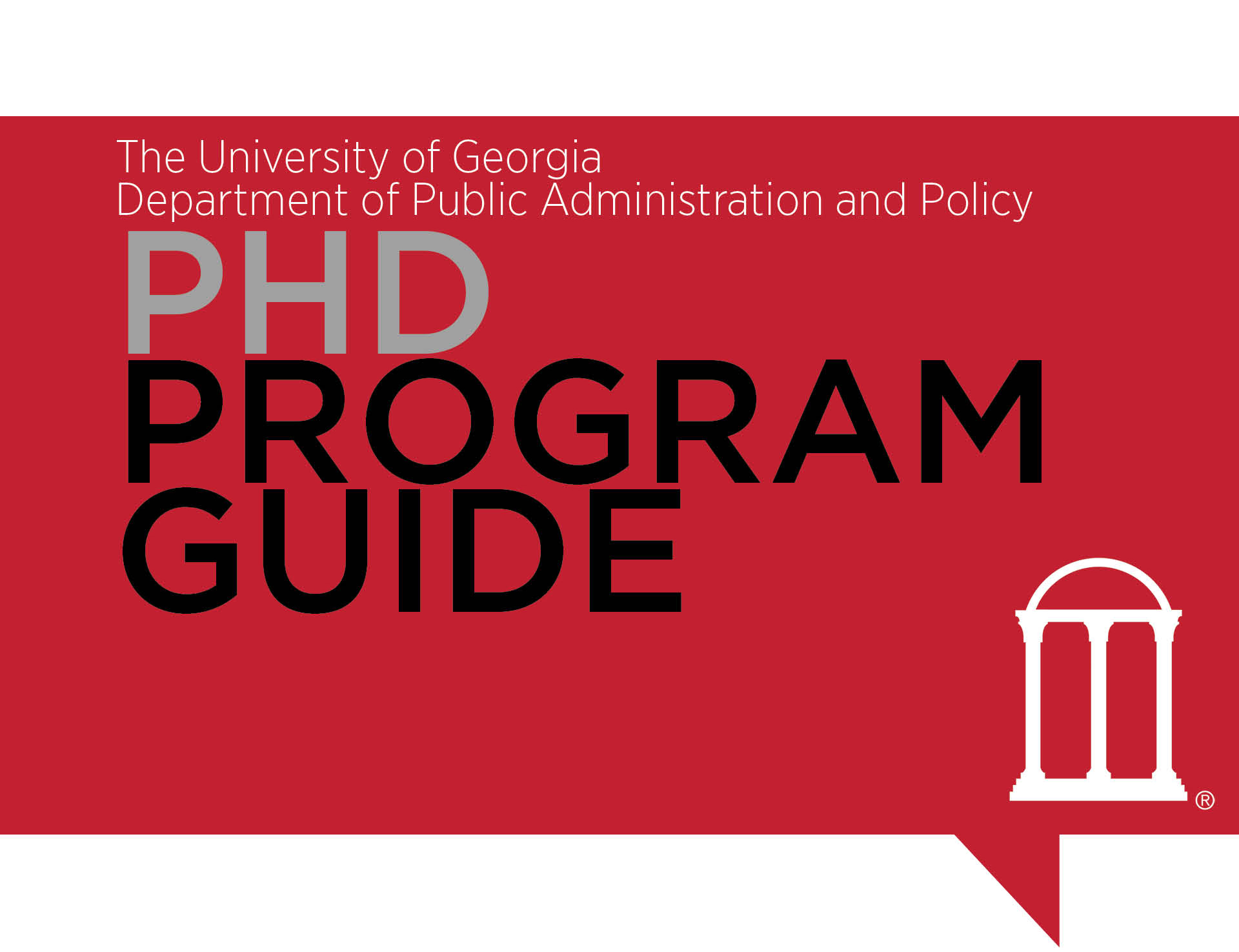
- Charles S. Bullock III 50th Anniversary Celebration
- Constitution Day 2015
- Constitution Day 2016
- Constitution Day 2020
- Constitution Day 2022
- COVID Information and Resources
- SPIA Remote New Student Orientation 2022-23
- Constitution Day 2017
- Constitution Day 2018
- Constitution Day 2019
- Representation, Participation, and Recognition
- Curricula and Pedagogy
- Access and Opportunity
- Outreach and Partnership
- Additional Resources
- Information for Faculty / Staff
- Partnerships
- Constitution Day 2021
- Constitution Day 2023
- About the Department
- Career Services
- Orientation
- Scheduling / Advising
- Gwinnett Campus
- Study Abroad
- Certificates
- Public Affairs Professional Certificate in Applied Politics
- American Founding Group
- Certificate in Global Studies
- Study Away Programs
- Global Leadership and Development Program
- Support Our Work
- About the Center
- Comprehensive Border Management Academy
- Nuclear Regulatory and Environmental Management Policy
- Energy Security Policy
- Strategic Trade Management Training
- Promoting Nuclear Security Culture
- WMD Counterproliferation
- Human Security
- International Security and Nonproliferation
- Energy Security
- Research Grants
- Master of International Policy (MIP)
- ROTC Russian Language Training
- CITS Scholarships & Fellowships
- Hire a CITS Student
- Support CITS Students
- CITS Faculty
- CITS Fellows
- 1540 Compass
- 2024 Electric Mobility Summit
- US-China Trade and Security Forum
- Global Decisions Lecture Series
- Russia Malign Influence on International Security Series
- CITS Signature Lecture
- Scholarships & Fellowships
- US-Korea Security Forum
- 2022 Energy Security Conference
- Certificate in Data Analytics in Public Policy
- Edinburgh, Scotland – Summer
- Ireland – Summer
- Morocco – Summer
- The Freedom to Assemble Program: Protest, Place, and the Civil Rights Movement – Maymester
- U.S. National Parks – Maymester
- Verona, Italy – Spring
- SPIA a Firenze – Maymester in Italy
- SPIA – GLOBIS Partner: Global Studies at Stellenbosch University – Summer
- Stellenbosch, South Africa-Maymester
- Liverpool, England-Summer
- SPIA at Oxford
- MPA Program in South Korea
- UGA à Paris
- Study Abroad Scholarships
- Alumni Speaker Series
- Alumni Reception in Washington DC
- Constitution Day
- George S. Parthemos Lecture
- Georgia Legislative Outlook
- Getzen Lecture on Government Accountability
- Johnny Isakson Legacy Fund & Symposium on Political Civility
- Judge Horace J. Johnson, Jr. Lecture on Race, Law and Policy
- Political Science Speaker Series
- Susette M. Talarico Lecture
- SPIA Giving Day
- Undergraduate Research Colloquium
- American Political History Conference
- Call for Papers, Nominations & Awards
- Conference Registration
- Location & Accommodations
- Sponsorship & Advertising Opportunities
- Conference Program
- Undergraduate Degree Programs
- Research & MA/PHD Programs
- Master of Public Administration (MPA)
- Political Science 75th Anniversary
- Master of Public Administration
- Master of International Policy
- MA Political Science & International Affairs
- PhD Political Science & International Affairs
- PhD Public Administration & Policy
- AB Political Science or International Affairs
- 4Redirect: Department of Public Administration and Policy
- 4Redirect: Department of Political Science
- 4Redirect: Department of International Affairs
- 4Redirect: Center for the Study of Global Issues (GLOBIS)
- 4Redirect: SPIA Department of Political Science 75th
- 4Redirect: Center for International Trade and Security (CITS)
- 4Redirect: Public Affairs Professional Certificate
- Human Rights Measurement Initiative
Department Contact

Katherine Willoughby
Margaret Hughes and Robert T. Golembiewski Professor of Public Administration Professor of Public Administration and Policy PhD Program Director, Department of Public Administration & Policy
201B Baldwin Hall [email protected]
UGA Quicklinks
- UGA Admissions Office
- Apply to UGA
- Tuition and Costs of Attending
- Scholarships at UGA
- Majors at UGA
- Admission Blog
- Criminal Justice Studies Program
School of Public and International Affairs The University of Georgia 204 Candler Hall Athens, GA 30602 706-542-4114 (Academic Advisement) 706-542-2059 (Office of the Dean) [email protected] Submit a Complaint Privacy

School of City & Regional Planning
College of design.

Ph.D. in City and Regional Planning
Doctoral study in city and regional planning combines research and theory in an applied professional field. We link theory to practice, allowing students to explore the most important issues facing rapidly changing urban areas today.
We build socially, economically, and environmentally resilient communities through interdisciplinary study and research. Our doctoral students consistently graduate to top academic and other professional careers. We welcome your interest and inquiries.
Join an Information Session
These sessions are thoughtfully curated to provide you with an in-depth understanding of the unique nuances and requirements of the Ph.D. in City and Regional Planning. You'll be able to engage directly with our program director, gain invaluable insights, and have your queries addressed firsthand. Follow this link to get signed up.
Extending the Horizon of Planning
Each year, the Ph.D. program seeks applicants with research interests that correspond closely to those of our faculty. Our faculty engage in research and teaching across the diverse spectrum of planning, including economic and community development, housing, land use, environment, transportation, planning theory, collaborative governance, and urban design.
Some of the cutting-edge issues they focus on include climate change, urban analytics, economic resilience, megaregions, disaster planning, and healthy cities. The three to five new Ph.D. students that we admit annually work closely with their faculty advisors to develop a course of study that will extend the horizons of knowledge available in our profession.
Besides their major area of focus in planning, students identify a minor area outside of planning to augment their intellectual foundation. Students are able to take courses in other degree programs at Georgia Tech, as well as at other research universities in Atlanta, including Emory University and Georgia State University.
If you apply to our program, we will want to know what motivates you to make the significant commitment to pursue a Ph.D. in the field of planning, as well as why you see Georgia Tech as an appropriate home to fulfill that commitment.
Program Requirements
The doctoral program has three main components: the coursework (which includes the program core, a major field, and a minor field); the comprehensive exams; and the dissertation.
The program of study requires two years of residency minimum (no fewer than four semesters enrolled for at least six credit hours each, excluding summer) devoted to coursework and other preparation for advancement to candidacy. Successful students demonstrate mastery in these areas and are prepared to pursue upper-level careers in government, business, research, and academia. Full details can be found in the Ph.D. Program Handbook .
Coursework involves a specialized program of study designed by the student and faculty focusing on a major field within city and regional planning, and on a minor field outside the College of Design.
Students complete at least 46 credit hours in their major field, minor field, and the Ph.D. program core requirements, and in various elective courses.
Students complete a minimum of 15 semester-hours of study in their major field, a minimum of 9 hours in their minor field, and a minimum of 19 hours in the program core.
Descriptions of courses offered in city and regional planning and other programs in the College of Design can be found in the Institute’s course catalog .
Major Fields
Upon admission, each Ph.D. student chooses a major area of study. Any change to the major requires review and approval by the Ph.D. faculty.
To meet the major requirement, students must have satisfactory performance (B or better letter grade) in courses composing not fewer than 15 credit hours. The student’s Advisory Committee may require other courses within the College or other units within the University System of Georgia consistent with the student’s expressed interest in her selected field of concentration.
The composition of chosen courses should provide a full background and preparation in both the substance of the field of study, and appropriate methods of inquiry and analysis.
Examples of majors pursued by doctoral students in the School of City and Regional Planning include:
- Urban climate change management
- Built environment and transportation planning
- Equity and social justice planning
Minor Fields
Students choose a minor to demonstrate competence and inquiry in an area of study related to, but outside of, the School of City and Regional Planning.
To meet the minor requirement, students must have satisfactory performance (defined as a B or better letter grade) in courses composing not fewer than 9 credit hours.
Examples of minors outside the School of City and Regional Planning include:
- Regional economics
- Public health
- Water resources management
Program Core
The core course requirement provides students with a basic knowledge of planning theory, regional theory, and research design and methods.
The Ph.D. seminars acquaint students with questions, methods, and paradigms of research and with the modes of scholarship and pedagogy associated with the city and regional planning field.
Requirements include:
- Advanced Planning Theory (three credit hours)
- Advanced Urban and Regional Development Theory (three credit hours)
- Quantitative Research Design and Methods (three credit hours)
- Qualitative Research Design and Methods (three credit hours)
- Ph.D. Foundations Seminar (one credit hour)
- Ph.D. Planning Seminar (one credit hour each year)
Comprehensive Examination
Once students have completed their coursework, with the exception of on-going attendance in Seminar in Advanced Research Design and Methods, they are ready to take the comprehensive examinations.
Students are tested in five areas: the student’s major and minor fields, and three core area exams in planning theory, regional economic theory, and research design and methods. Core comprehensive exams can be waived by earning a letter grade of ‘A’ in a core course.
The examination process includes both written and oral testing of a student’s mastery of the subjects. Upon successful completion, the student moves on to the dissertation phase of the program.
Dissertation
The doctoral dissertation is a written piece of original scholarship that represents a significant new perspective or contribution in the candidate’s chosen field of study. The dissertation must be relevant to the field of planning, and either an addition to the fundamental knowledge base in the field of study or a new and better interpretation of facts already known. It must demonstrate that the candidate possesses powers of original thought, talent for research, understanding of theory and methodology, and ability to organize and present findings.
Admission Details
All application materials are submitted using the Georgia Tech Graduate Studies and Admissions Online System. Applications for admission are due by January 15 . In most cases, students are accepted for and enter the program in the Fall semester.
Applicants admitted to the PhD Program normally will have completed the requirements for the Master of City and Regional Planning (MCRP), or a related Masters degree program. Students from allied fields are also encouraged to apply. In exceptional cases, students with a Bachelors degree only may be accepted directly into the PhD Program but will be required to complete the Masters in City and Regional Planning degree before advancing to candidacy for the PhD degree. PhD students are eligible for an accelerated MCRP curriculum, as outlined in the Ph.D. Program Handbook
Application materials:
Application Forms
Application Fee.
Georgia Tech offers application fee waivers to qualifying applicants. Comprehensive information on whether you qualify for the Institute-sponsored application fee waiver program and how to request one if you do is available here . The School of City and Regional Planning is additionally offering a limited number of department-sponsored application fee waivers to applicants who do not fall in the waiver categories described ; If paying the application fee poses an undue financial burden to you and you do not qualify for an Institute-sponsored fee waiver, you may apply to be considered for a SCaRP departmental application fee waiver by completing this form before December 1st.
Three Letters of Recommendation
Examples of previous research and written works
Official transcripts from all previously attended institutions of higher learning
Statement of Purpose
Describe what you have done to prepare yourself for study in a PhD Program.
Why have you chosen to apply to the PhD program in City and Regional Planning at Georgia Institute of Technology?
What area of planning research is of particular interest to you? How might you explore this interest as a doctoral student at Georgia Tech?
Detail your academic and research goals and career plans.
Personal Biography Form
Graduate Record Examination (GRE) scores is required for admission of this program, with a minimum score of 150 (Verbal), 150 (Quantitative), and 4.0 (Analytical Writing).
Proof of English proficiency for applicants whose first language is not English: Test of English as a Foreign Language (TOEFL). TOEFL scores of 620/261/102 or higher for the test (paper, computer, and internet tests respectively) are expected. Other evidence of English proficiency, such as provided in writing samples or oral interviews, may also be considered in determining language proficiency. Applicants having completed a Bachelors or Masters degree at a US University are not required to submit TOEFL scores. OR International English Language Testing System (IELTS) with a minimum score of 7.5. For complete outline of the English proficiency requirement and ways to get exemptions from testing, please see https://grad.gatech.edu/english-proficiency
Cost, Funding and Financial Aid
The SCaRP PhD program typically makes fully funded offers for the first four years of the program. Students receive a tuition waiver and monthly stipend while working 15-20 hours per week as graduate research assistants, as co-op students with local partners, as TAs or instructors for our graduate and undergraduate offerings. The College of Design 2023-2024 stipend rates are:
- $2,235 working at 15 hours per week
- $2,689 working at 20 hours per week
The institution guidelines for stipends can be found here: Stipends for Graduate Assistantships | Policy Library .
Recent Doctoral Student Work
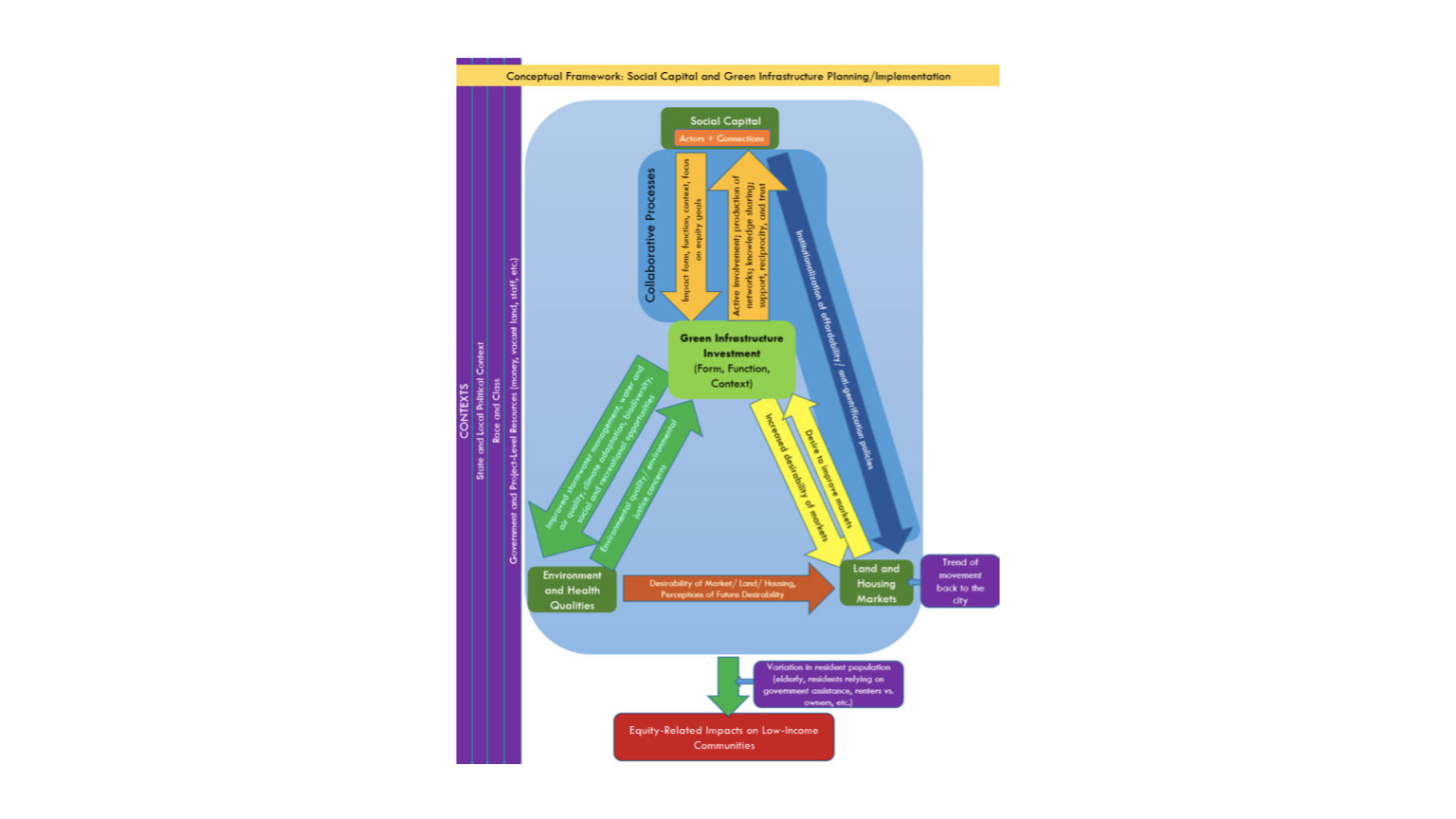
Student Work: Green Infrastructure
Jessica fisch.
Planners, policymakers, and elected officials increasingly view investments in green infrastructure, parks and other green development as opportunities for spurring economic growth, increasing environmental quality, and providing social and recreational amenities in urban areas. However, research has indicated that these projects do not adequately address equity concerns, such as access for low-income and marginalized groups, housing affordability, and displacement of existing residents. Consequently, green infrastructure projects can lead to ‘environmental gentrification.’
This dissertation work finds that green infrastructure planning may reinforce social capital, which in turn shapes green infrastructure projects and planning processes with regard to addressing housing affordability and community benefits concerns. It further finds that social capital has served as a catalyst for advocacy and the development of organizations, policies, and programs focused on housing affordability and workforce development.
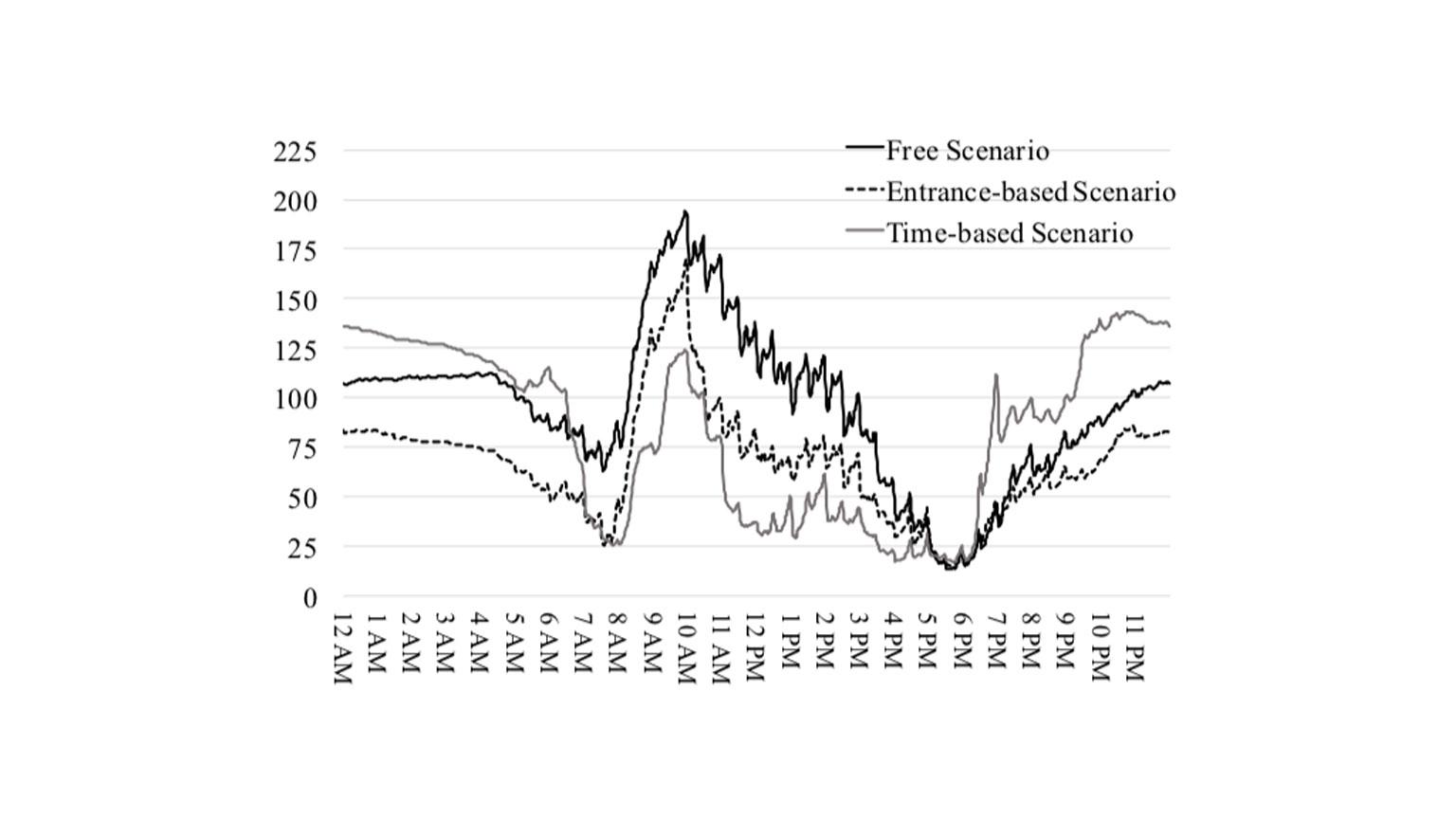
Student Work: Shared Autonomous Vehicles
Wenwen zhang.
We are on the cusp of a new era in mobility given that the enabling technologies for autonomous vehicles (AVs) are almost ready for deployment. This promising technology together with the sharing economy will enable a new travel mode – Shared Autonomous Vehicles (SAVs), a taxi service without drivers.
Recent studies have explored the feasibility, affordability, environmental benefits, and parking demand of the system in hypothetical grid-base cities. Despite these rapidly proliferating studies, it remains unclear how this affordable and environmentally friendly travel mode will influence residential and commercial location choices and potentially transform urban form. How much parking will we need and where will it be located when the SAV system is a popular mode of travel?
In this graphic, we see how the demand for parking fluctuates in response to three pricing scenarios: free parking, a flat rate, and a time-variable rate. The results of this dissertation work suggest the SAV system can reduce over 90% of parking demand for households who participate into the system and give up their private vehicles, potentially freeing substantial acreage of urban land for other critical needs.
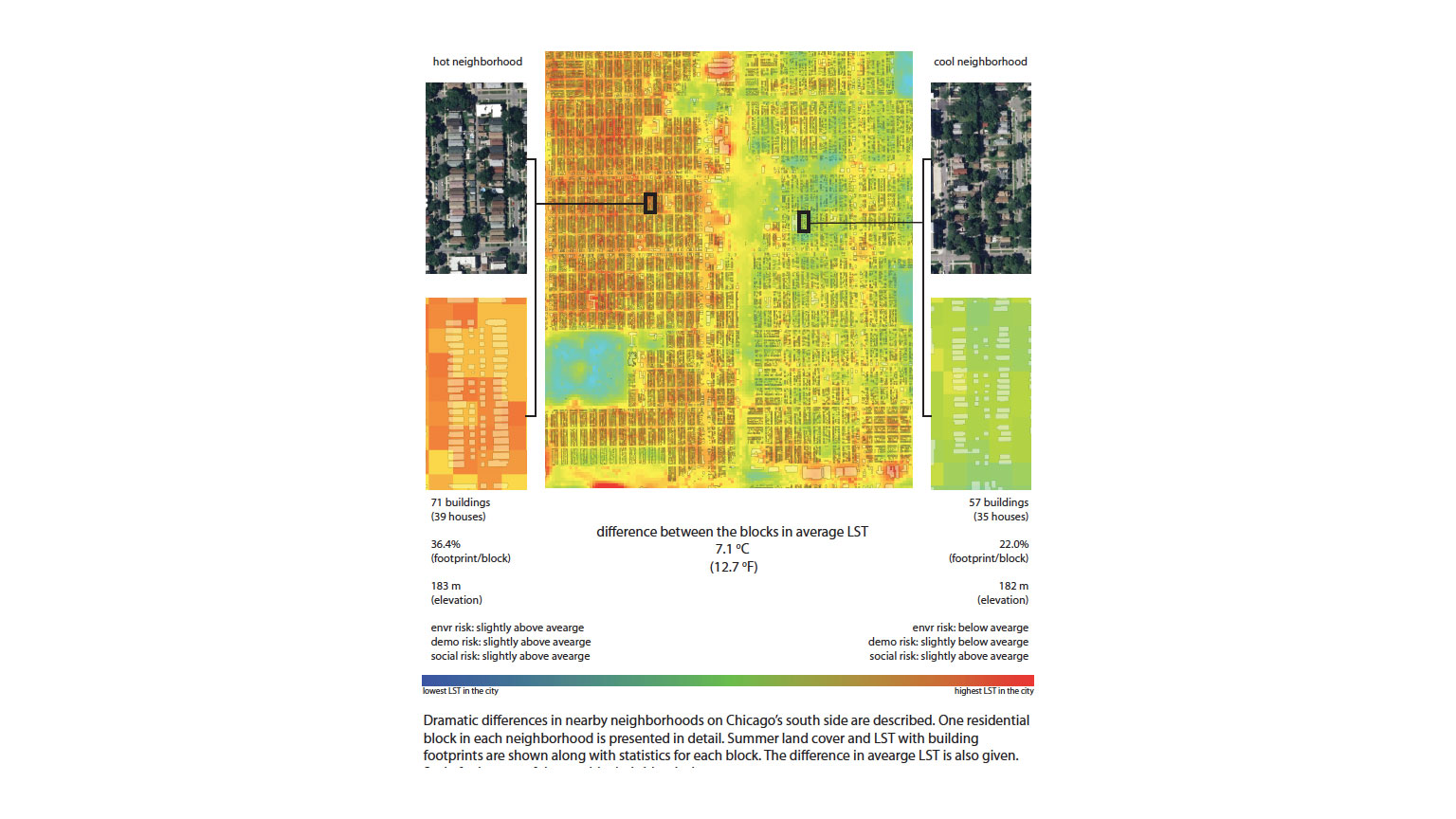
Student Work: Local Environment and Extreme Heat
Jason vargo, 2012.
This dissertation explores interactions between global trends in climate change with local influences tied to urban land covers. First, it examines temperatures during an extended period of extreme heat and asks whether changes in land surface temperatures during a heat wave are consistent in space and time across all land cover types.
Second, the influences of land covers on temperatures are considered for normal and extreme summer weather to find out which characteristics of the built environment most influence temperatures during periods of extreme heat.
Finally, the distribution of extreme heat health risks within cities are described and examined for spatial patterns. As illustrated in this graphic, the physical design of city blocks can yield very different patterns of heat exposure in cities, with direct implications for human health. The results of this dissertation are assisting cities in their development of climate change adaptation plans focused on rising levels of heat exposure.
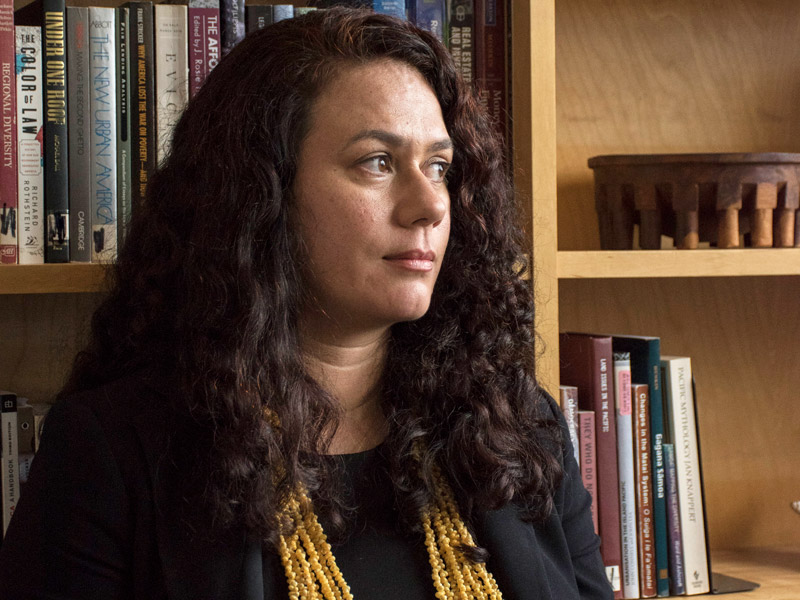
Meet the Ph.D. Program Director
Elora raymond.
Elora Lee Raymond is an urban planner and Assistant Professor in the School of City and Regional Planning in the College of Design at Georgia Tech. She is interested in the financialization of housing and property in land, displacement and dispossession through housing systems, housing and disasters, housing justice, race, segregation, and the transnational Pacific Islander community.
We know the relationship between a Doctoral Student and their advisor is crucial to getting the most out of their degree. We are here to make the most out of your PhD education. We encourage those interested in the Ph.D. program to reach out to Elora Raymond with questions about pursuing a Ph.D. at Georgia Tech.
Want to Know More?
Get answers about our programs, join our email list, sign up for an information session.
School of Music
College of design.

Ph.D. in Music Technology
Our Ph.D. in Music Technology is a fully funded program, including a monthly stipend and tuition waiver. In this program, our students focus on novel research with a broad impact on music, collaborating with faculty on a variety of topics.
Additionally, our students are trained in research methods, teaching pedagogy, and an interdisciplinary minor field. We ensure all of our Ph.D. students are prepared for careers in academia, industry research labs, or their own startup companies.
Requirements
In order to be accepted into the Music Technology Ph.D. program, you are expected to hold a Master’s degree in Music Technology or from a similar field, such as computing, music, engineering, or media arts and sciences. Regardless of what Master's degree you hold, all applicants are expected to demonstrate expertise of core masters-level material covered in Music Technology. This includes proficiency in:
- Music theory, performance, composition, and/or analysis
- Music Information Retrieval
- Digital Signal processing and Synthesis
- Interactive Music Systems Design
- Music Cognition
We will determine your proficiency through an extensive review of a portfolio of your work, and an interview process.
Students may waive the requirement to enroll in specific courses by appealing to the Music Technology Graduate Program Committee. Such appeals will typically be granted only if the student has already taken the same course at Georgia Tech or has taken a substantially equivalent course at another institution, and if the student has earned an exceptional grade in that course.
The application deadline for Spring semester is September 1st. The deadline for Fall semester is January 15th.
Ph.D. Curriculum Overview
Required minor field of study.
Minors, which are selected by students in consultation with their advisor, are designed to enable the student to apply knowledge from other fields toward work in Music Technology. The student is responsible for the full range of knowledge, at the level of professional competence, for the Minor field selected. Minors often focus on traditional fields of study associated with other professions, such as human-computer interaction, digital signal processing, and digital media. Minors typically constitute 9 hours of coursework.
As an example, a minor in social computing might include:
- CS 6750 Introduction to Human Computer Interaction
- CS 6460 Foundations of Educational Technology
- CS 6470 Online Communities
Qualifying Paper
The qualifying paper is designed to demonstrate the student’s capacity to effectively conduct, analyze and communicate research and to encourage the student toward continued scholarship and publication of research. The paper must present original scholarship. It will typically be written in the context of a particular sub-field within music technology. Examples of typical sub-fields include: music information retrieval, digital instruments, interactive multimedia systems, music composition, music cognition and perception, and acoustics.
The paper is to be written in the format of a journal article, aimed at a specific peer-reviewed scholarly journal or conference in the sub-field. The paper must be reviewed and approved by the Music Technology Graduate Program Committee.
An example of a successful qualifying paper in music cognition might be the presentation of a theory of sadness evoked by music based on data compiled from human subject tests. Such a paper would likely detail the related music emotion literature and perceptual expectation literature from psychology, a statement of the hypothesis, a detailed description of the motivation and experimental design, a statistical analysis of the results, and the implications of the data analysis for the hypothesis.
Comprehensive Exam
Music Technology students will take a common exam and an individualized exam. Both exams will include written and oral components. The common exam will cover the core areas of music technology as outlined by the courses in the music technology core, including research methods, theory, and analysis. The exam will focus on a list of topics and corresponding bibliography provided to students by the Music Technology Graduate Program Committee. The individualized exam will focus on the student’s minor field of study and its relationship to music technology. The student will develop, under the direction of her or his advisor, a description of the field of study and a bibliography to serve as the basis for the exam. The test will cover history and precedent in the field, theory (its evolution and current debate), and methods of analysis and inquiry. The proposal should delineate the parameters of the field of study and the literature pertinent to that field.
Dissertation
The student will propose, conduct, and defend a work of original scholarship. The dissertation topic must give promise of being either a genuine addition to the fundamental knowledge of the field or a new and better interpretation of facts already known. It will typically be written in the context of a particular sub-field within music technology. Examples of typical sub-fields include: music information retrieval, digital instruments, interactive multimedia systems, music composition, music cognition and perception, and acoustics.
An example of a successful dissertation in music information retrieval might be one where the student devises a way of unmixing a musical signal into its constituent parts by extending or generalizing algorithms previously used only for image processing. This might culminate in the development and distribution of open-source software that could be widely used by other music technology researchers. The written dissertation might include a comparison with other state-of-the-art technologies emphasizing novel and beneficial aspects of the new approach, a detailed description of the algorithm, and the results of an empirical evaluation based on realistic musical problems.
Our B.S., M.S., and Ph.D. music technology students don’t just use technology to make music. They invent the next generation of technologies that will revolutionize the music industry. Learn more about the blend of creative and technical work at the Georgia Tech School of Music.
Graduate Education
Office of graduate and postdoctoral education, doctoral degrees.
Earning a doctoral degree at Georgia Tech opens many doors for our students. There are several reasons to continue your education to this level: a deep interest in the subject of your program; a desire to pursue an academic career as a researcher and/or educator; or to continue to sharpen your skills in order to work in a particular industry. Completing a doctoral degree can provide you with technical tools and the confidence to use them to create innovative solutions.
The Office of Graduate Education has prepared an admissions checklist to help you navigate through the admissions process.
Electrical and Computer Engineering (Ph.D.)
Focus: advancing knowledge and research in areas such as bioengineering, computer engineering, digital signal processing, electrical energy, electromagnetics, electronic design and applications, microsystems, optics and photonics, systems and controls, and telecommunications.
- Alumni & Giving
- Current Students
- Faculty & Staff
- Careers & Practice
- Why Public Health at UGA?
- Applying to UGA CPH
- Financial Aid
- Admission Support
- Events & Campus Visits
- Research at CPH
- Find an Expert
- Research Institutes
- Degrees & Programs
- Experiential Learning
- Online Learning
- Departments
- Health Equity Hub
- Community Engagement
- Work With Us
- Learn With Us
- Mission, Vision, and Values
- Inclusive Excellence
- Administrative Offices
- Departments & Institutes
- Accreditation
- 2020-2025 Strategic Plan
- Communications Office
- College of Public Health Magazine
- Undergraduate
- Certificates
- Office of Academic Affairs
- Office of Research
- Community Engagement Map
- Community Resources
- Training & Education
- Outreach Services
- Office of Outreach, Engagement & Equity
- Dean’s Office

- Ph.D. in Health Promotion
The primary objective of the Doctoral Program in Health Promotion, administrated by the College’s Department of Health Promotion and Behavior , is to prepare researchers and leaders in the field by fostering research and development in the field of health promotion. Programs of study are interdisciplinary, recognizing that the sophisticated study of health behavior requires theories, information, and expertise from many fields.
More Information
Degree competencies.
Through coursework and research experiences, Ph.D. graduates will meet the following competencies:
- Analyze and interpret research results and epidemiological data to identify research questions, knowledge gaps, and methodological shortcomings that if addressed, hold potential for advancing our understanding of public health problems.
- Design research studies based on theories of behavior and social change that address important empirical questions related to health behavior, disease, and injury prevention.
- Utilize appropriate research designs, data collection strategies, and quantitative and qualitative analytic methods to conduct research on health behavior and disease and injury prevention.
- Choose appropriate scholarly communication channels to share research results, disseminate evidence-based strategies and approaches, and otherwise share in the critical exchange of ideas and solutions pertinent to health behavior and disease and injury prevention.
- Collaborate with other public health researchers and professionals through team-based project work or through processes of peer review and feedback.
- Integrate principles of good ethical practice and cultural sensitivity in all aspects of research, teaching, and professional practice.
- Prepare research proposals that are guided by behavioral theory and include appropriate research methodology.
Each program of study must meet the requirements of the Graduate School and the Department of Health Promotion and Behavior.
Doctoral students must demonstrate competency in the core master level health promotion courses and basic research methods, by taking the courses at UGA or by demonstrating prior equivalent coursework.
Master Level Competencies: up to 12 credit hours
HPRB 7010 Social and Behavioral Foundations of Health EPID 7010 Intro to Epidemiology I HPRB 7920 Theories of Health Behavior HPRB 7470 Program Evaluation in Health Promotion and Health Education
Basic Research Competencies: 6 credit hours
BIOS 7010 Biostatistics I BIOS 7020 Biostatistics II OR ERSH 8310 Applied Analysis of Variance ERSH 8320 Applied Correlation and Regression
All doctoral students will take the doctoral level Health Promotion core courses, cognate courses, advance research methods, research seminar, and doctoral dissertation
Health Behavior Core Requirements:
HPRB 8510 Research Methods HPRB 8520 Research Methods HPRB 8420 Theory and Research in Health Behavior HPRB 8430 Intervention and Evaluation of Health Promotion and Disease Prevention HPRB 9630 Critique of Literature in Health Promotion and Behavior
Cognate Area Requirements: 12 credit hours
The cognates serve to enhance the student’s content background and research competencies. Students will work directly with their major professor to determine the most appropriate classes for their area of interest.
Advanced Research Methods: 9-12 credit hours
Students must successfully complete a plan sequence of 9-12 hours in advanced methods courses. This sequence should be planned in consultation with the Major Professor and approved by the advisory committee, and should be of sufficient depth and focus to fully support the planned dissertation work. The 9-12 hours should emphasize quantitative or qualitative methods courses.
Doctoral Research Seminar: 4 credit hours
Students will complete 4 hours of doctoral seminar by enrolling in 2 hours of HPRB 8990 for the Spring Semester of their third year and the Fall Semester of their fourth year. The purpose of this seminar is to provide students with personal and professional development pertaining to post-doctoral employment and career planning. Students must have passed written and oral comprehensive exams prior to enrolling in this seminar.
Doctoral Dissertation (HPRB 9000 and HPRB 9300): 3 to 30 credit hours
- How to Apply
In general, the following minimum admissions criteria are recommended: A minimum grade point average of 3.0 on a 4.0 scale. Minimum GRE scores of 300 (combined verbal and quantitative). GRE Scores must be within the last five years. GRE Scores must be submitted to the University of Georgia Graduate School, not SOPHAS. The GRE is required for admissions. There are no exceptions.
Applications are considered in their entirety before making admission decisions.
The application process requires two steps:
Step 1 – A completed application to the University of Georgia Graduate School . This application must be completed online . No paper materials will be provided.
- Domestic Application Information
- International Application Information
Brief summary of required UGA Graduate School application materials:
- UGA Graduate School online application
- UGA graduate application processing fee
- Applicants should submit unofficial transcripts from all institutions attended as part of the online application. Unofficial transcripts not submitted as part of the online application can be emailed to [email protected] . Official transcripts are not required during the review process and will only be required for applicants who are offered admission. Once a student is offered admission they must mail two copies of their official transcript to the graduate school. (International applicants: two sets of official academic records and proof of degrees)
- Official GRE scores sent by the testing agency (UGA institutional code for ETS reporting: 5813)
- Three letters of recommendation (part of the online application)
- Application for Georgia residence status (if claiming legal residence in Georgia)
- Statement of Purpose
International Applicants – addition information needed:
- Official TOEFL or IELTS scores sent by testing agency
- Certificate of Finances (COF) form
- Visa Information
Step 2 – A completed application to the Department of Health Promotion and Behavior The following materials need to be sent to the department. NOTE: SOPHAS applications are not accepted for the PhD program. You must complete the departmental application.
- Complete Departmental Application to the UGA Health Promotion and Behavior PhD Program (Word Document).
- Curriculum vitae or resume (pdf or MS Word format) to [email protected] .
Application Deadlines and Admission Decisions:
The Graduate School application and the Department of Health Promotion and Behavior application must be received by December 1, 2023 for Fall 2024 admission .
All application materials must be in by the deadline to be considered for an assistantship.
Frequently Asked Questions
Can I stop by to meet with someone about the program?
If you are interested in speaking with a faculty member in the department, please email them to schedule a time for a meeting or phone conversation.
Is it possible to speak with current students before applying?
If you would like to speak with current students in the Health Promotion and Behavior Program please email the request to [email protected] and we can connect you with some of our current students.
Is an MPH required for admission to the Ph.D. program?
An MPH is not required. However, if you are accepted and you do not have an MPH degree, some master’s level courses may be required before beginning your doctoral classes.
What official transcripts do I need to send?
Applicants should submit unofficial transcripts from all institutions attended as part of the online application. Official transcripts are not required during the review process and will only be required for applicants who are offered admission. For information about international credentials and what is considered by us to be official, please visit the UGA Graduate School’s Country-Specific Academic Credentials and Requirements page .
Does the department offer graduate/research assistantships?
While we try to offer assistantships to each accepted student, it is not always possible. Assistantships are very competitive and are awarded based on the applicant pool. To be fully considered, you must have all application materials submitted by the priority deadline listed on the website.
Is there an interview process?
Yes. Leading candidates are interviewed to determine fit to program and faculty mentors.
What are the tuition and fees?
Up-to-date tuition and fee information can be found at the UGA Bursar Office website .
What semesters do you currently enroll students for the Ph.D. program?
The Department of Health Promotion and Behavior accepts applications for the Fall semester only.
What is the typical time to complete the program?
It varies from student to student, but typically full-time students complete the program in 4 years.
Is this an online program?
No, the majority of required courses are offered in-class only.
Do you accept part-time students?
Yes, we do accept part-time students, but all classes are located in Athens and offered during the day. Students must have a flexible schedule in order to attend classes and complete the program in a reasonable time frame.
What are the minimum requirements for GRE scores?
300 on the new scale.
Are there any criteria considered over others when reviewing applicants?
We take into account GRE scores, GPA, Letters of Recommendation, personal statement, CV, prior work experience, and program fit. These are all considered when deciding if an applicant is an acceptable candidate for our program. We consider all applicant materials and do not necessarily weigh one over the other.
HPB PhD Student Handbook
- Preceptor Information
- Undergraduate Advising Office
- Faculty Affairs
- Service Learning
- Study Abroad
- Tuition & Fees
- About Athens
- Greetings from the Dean
- Location & Facilities
- History & Facts
- Our Founding Dean
- What is Public Health
- MPH Applied Practice Experience
- MPH Capstone
- MPH FAQ’s
- MPH Information Request
- B.S. in Environmental Health or Health Promotion
- M.S. or Ph.D. in Environmental Health
- M.S. or Ph.D. in Epidemiology & Biostatistics
- Master of Health Administration (MHA)
- Master of Public Health (MPH)
- Doctor of Public Health (DrPH)
- Dual Degree Programs
- Double Dawgs Program (Bachelor’s Degree + MPH)
- Academics at EHS
- Research at EHS
- Where to find us
- Academics at EPIBIO
- Research at EPIBIO
- Academics at HPAM
- Research at HPAM
- What is Health Promotion?
- Academics at HPB
- Research at HPB
- Global Health Institute
- Institute for Disaster Management
- Institute of Gerontology
- Business Office
- Office of Development & Alumni Relations
- Office of Information Technology
- Faculty of Medical Sciences
- Undergraduate Programs
- Graduate Programs
- Student Organizations
- Global Health Courses
- Signature Programs
- News & Events
- Areas to Explore
- What Is Gerontology?
- Collaborators
- Participant Registration
- Student Research Mentorship
- Academic Programs
- Service & Practice
- CARE Center
- Biostatistics Collaborative Unit
- Economic Evaluation Research Group
- Practice, Research, and Mentorship in Epidemiology
- Public Health Evaluation Studies Group
- Traffic Safety Research and Evaluation Group
- Workplace Health Group
- CPH Research Day
- CPH Office of Research
- Health Disparities Working Group
- Health Equity Fellows Program
- Featured Projects
- COVID-19 Education Resources
- State of the Public’s Health Conference
- CPH Brand Style Guide
- CPH T-Shirt Design Competition
- Undergraduate Student Resources
- Graduate Student Resources
- Diversity & Inclusion
- HSC Student Food Pantry
- Veterans & Military Candidates
- Poster Templates
- Submit a Student Complaint
- Update your Student Directory Profile
- Faculty & Staff Awards
- CPH Staff Advisory Council
- Update your Faculty Directory Profile
- Update your Staff Directory Profile
- Submit an Event
- Stay in Touch
- CPH Alumni Board
- How to Give
- Impact Stories
- Annual Giving
- Endowed Giving
- List of Funds
- Request Information
- CPH Directory
- Environmental Health Science
- Epidemiology & Biostatistics
- Health Policy & Management
- Health Promotion & Behavior
College of Public Health University of Georgia Health Sciences Campus Athens, GA 30602
General Information / Academic Affairs: 706.542.2300
MPH Admissions: 706.583.0885 [email protected]
DrPH Admissions: 678.377.3656 [email protected]

- Graduate Programs
- Prospective Students
- Current Students
- Faculty & Staff
University of Georgia Graduate School
Empowering and enriching global communities through advancements inspired by graduate education

May 10, 2024
Congratulations, Class of 2024
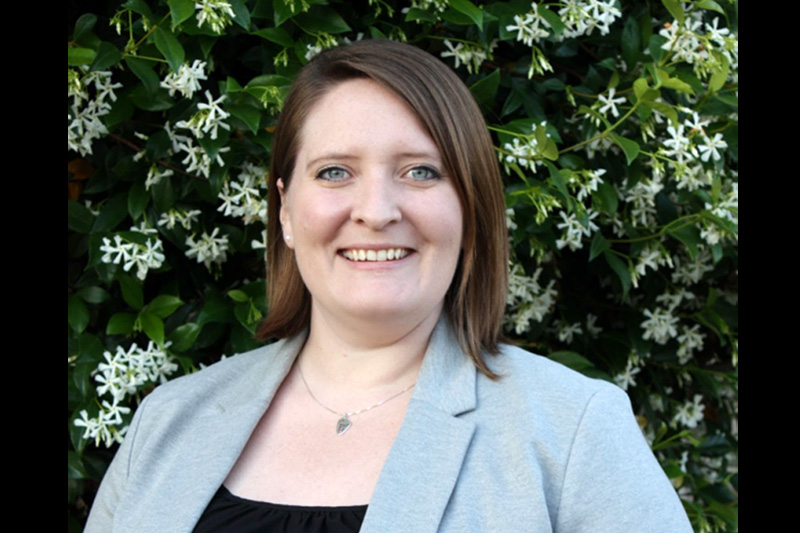
May 7, 2024
2024 P.E.O. Scholar Award Recipient, Rhiannon Schultz

May 6, 2024
Congratulations Graduates! Spring 2024 Commencement Details
Find your graduate program.
Offering 200+ degrees, certificates and programs of study, we’ll help you get started on your graduate journey.
or
Search by keyword, program of study, department or area of interest
Interested in earning both a bachelor’s & master’s degree in five years or less?
Learn more about Double Dawgs .

Resources For
- Faculty & Staff
Want to learn more about UGA graduate studies?
- Request Information
Get The Latest Graduate News
See All News

May 3, 2024
UGA raises almost $10 million for graduate and professional student support
Curo ignites passion for research with student symposium.
April 25, 2024
Staff Council elects officers for 2024-2025 academic year
Don’t miss our upcoming events.
See All Events
12:30 PM - 1:30 PM
MPA Program Information Webinar

Doctoral Programs
Graduate Certificates
Masters Programs
In Online Programs by U.S. News & World Report
Unlocking potential. Building futures.
Apply Today
The Graduate School Brooks Hall 310 Herty Drive Athens, GA 30602 706.542.1739
- Administration
- Graduate Bulletin
- Strategic Plan
- Virtual Tour
- Requirements
- Application Fee
- Check Status
- UGA Main Campus
- UGA Gwinnett
- UGA Griffin
- UGA Atlanta-Buckhead

- Hospital & Primary Care
- Diagnostic Services
- Education >
- Master’s & PhD Programs >
- PhD in Integrative Physiology & Pharmacology
For students interested in pursuing a physiology or pharmacology-related career
Our Department of Physiology and Pharmacology offers a PhD program for those wishing to pursue a career in research or teaching that is focused on the physiological, pharmacological, nutritional, and toxicological basis of disease and therapeutics. Each program of study is tailored by the student and their major professor to focus on their specific interests and future goals.
From how neural pathways control energy, balance and obesity to examining the molecular pharmacology of endocrine disorders, such as diabetes mellitus, we are offering student’s the opportunity to find solutions to some of today’s most pressing issues.
About the program
General overview.
Applicants are accepted through the University of Georgia’s Integrated Life Sciences (ILS) program . The ILS program allows first-year graduate students to explore the research areas of more than 200+ faculty and 14 participating units before they choose a major professor and departmental home. For a thorough outline of the program please see our Graduate Student Handbook .
Course requirements
Each program of study is developed by the student and their major professor based on future goals and research interests. It is then submitted to the graduate coordinator for approval by the advisory committee.
The Graduate School requires a total of 16 semester hours of 8000- or 9000- level courses (excluding of 9000 research and 9300 dissertation writing hours). Also, a minimum of three credit hours of dissertation research (VPHY 9300), a total of at least 30 credit hours of coursework including VPHY 9000, or VPHY 9300, and at least two consecutive semesters of full-time work in resident study on-campus is required.
Eligibility
Competitive applicants will have:
- Bachelor’s degree or Master’s degree in any biological science from an accredited institution
- International applicants need an equivalent to American bachelor’s degree requiring a minimum of four years of training
- Demonstrated research experience
For a list of current tuition and fees, see UGA’s Bursar & Treasury Services .
Students accepted into the program are supported through fellowships or assistantships. Students funded on fellowships or assistantships are also granted a tuition waiver. More information about financial support is included on the ILS website.
How to apply
Step 1: An online application must be completed through the UGA Graduate School. This will include the submission of official college transcripts and GRE scores; a résumé or curriculum vita; three letters of recommendation; and a biographical sketch describing your experiences, interest in physiology / pharmacology, and your reasons for applying to the program.
Foreign applicants are required to submit additional documentation as part of their online application. See the Graduate School’s website for a list of supplemental information for your country.
Step 2: Apply to the Integrated Life Sciences Program . This requires completion of the ILS Background Interest form and a personal statement.
Application deadline
We currently accept students for the fall semester only. Application packages must be completed prior to November 30th to be considered for matriculation the following June. Accepted applicants will be notified by February 1.
Important Documents
- Graduate Committee Assessment Form
- Preliminary Exam Assessment Form
Latest News
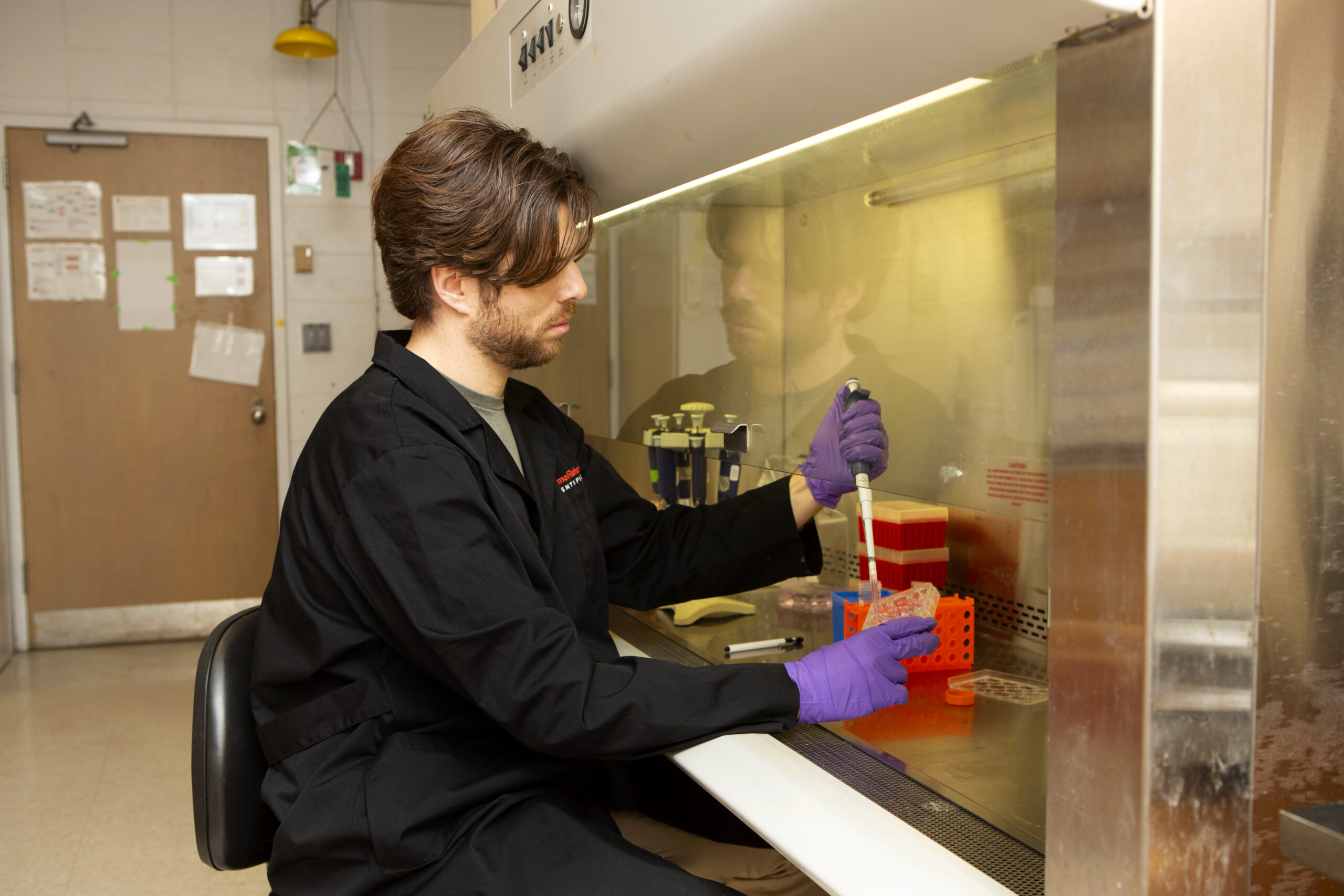
February 21, 2024
Graduate Student Profile: Jonathan “Jonny” Matthew Hancock
Jonathan “Jonny” Matthew Hancock began his graduate career in toxicology at the University of Georgia’s College of Veterinary Medicine in May of 2020, when the COVID pandemic was putting fear and doubt into occasions that would otherwise be marked by joy and anticipation.
- Master’s & PhD Programs
- DVM-MPH Program
- DVM-PhD program
Comparative Biomedical Sciences
- Master of Avian Medicine
- Master of Avian Health & Medicine
- Master of Food Animal Medicine
- PhD in Infectious Diseases
Contact Information

[email protected]
Department of Physiology and Pharmacology
Lab : 706.542.6041">706.542.6745 Lab : 706.542.6041 office
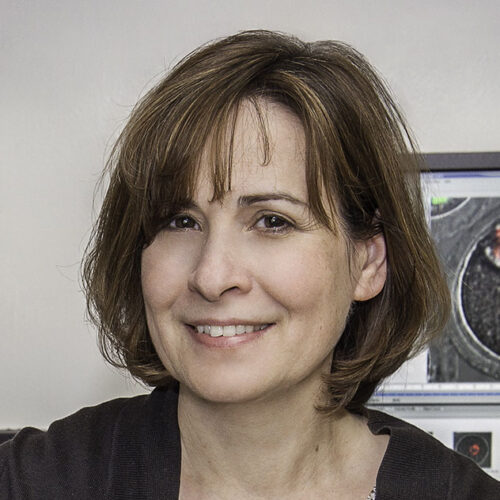
706.542.5869 office
Resources and Information for Graduate Students
Exploring the living organism and the effects of drugs and toxins. Learn more.
The Comparative Biomedical Sciences (CBS) graduate program is comprised of customizable MS and PhD programs. Learn more.
Life in Athens
Get to know the city
We’re UGA Vet Med, and our
passion powers our commitment.
- About the Dean
- Office of Academic Affairs
- Accreditation
- Diversity & Inclusion
- College Directory
- Academic Departments
- Student Life
- Undergraduate Programs
- DVM Program
- Master’s & PhD Programs
- Intern & Residency
- Office of Research & Faculty and Graduate Affairs
- Areas of Emphasis
- Research Centers
- Faculty Research Labs
- Clinical Trials
- Student Research Opportunities
- Veterinary Teaching Hospital
- Pet Health Center
- Mobile Veterinary Services
- Veterinary Diagnostic Laboratories
- PDRC Diagnostic Services
- Infectious Diseases Lab
- Pathology Labs
- Milk Quality Laboratory
- SCWDS Wildlife Research & Diagnostic Service
- Alumni & Giving
- Prospective Students
- Current Students
- Veterinarians
501 D. W. Brooks Drive Athens, GA 30602

IMAGES
VIDEO
COMMENTS
This is a top, fully online PhD program Georgia offers, which is ideal for busy working professionals. Courses: History of higher education, governance in higher education, and institutional assessment & program effectiveness. Credits: 60. Delivery: Online. Tuition: $241 per credit.
Public Policy, P.h.D. Public Management and Policy. Email: [email protected]. Phone: 404-413-0107. Societal needs—for economic growth, better health care, environmental protection, etc.—and resource limitations challenge policymakers to make difficult public policy choices. The doctoral program in public policy prepares its graduates to conduct ...
The UGA PhD Program in Social Work offers a research-intensive and interdisciplinary training for social work educators and professionals. The program requires a comprehensive exam, a prospectus defense, and a dissertation defense, and can be completed in 3-4 years with full-time or part-time options.
Full-time NYU Steinhardt Ph.D. students are eligible for a funding package that includes an annual stipend - $32,000 for the 2022-2023 academic year - tuition coverage for required coursework ...
Degree Program Summary: The Doctor of Philosophy (Ph.D.) degree in Computer Science at The University of Georgia is an advanced, intensive program offered by the Computer Science Department and designed to involve students in exciting state-of-the-art research. Research in Computer Science has made tremendous strides over the last few decades ...
Send the completed application directly to the PhD/MA Program Admission Office of the Terry College: PhD/MA Admissions Office Terry College of Business University of Georgia Amos Hall 620 S. Lumpkin Street Athens, GA 30602. To ensure that your application receives full consideration for funding, apply no later than January 15.
The PhD program in public administration and policy at the University of Georgia is designed to prepare students for leading careers in teaching, research, and public service. The program has a strong research orientation and maintains high standards in the admission and evaluation of students. Graduates of the program have received numerous national dissertation awards in public ...
Fully Funded PhD/Doctoral Programs in Georgia. A fully funded PhD or doctoral program is one in which tuition and other education costs are waived or paid for by the school. Depending on the program, your fees, books, transportation costs, and living expenses may also be included. One way schools provide these benefits is by offering students a ...
The SCaRP PhD program typically makes fully funded offers for the first four years of the program. Students receive a tuition waiver and monthly stipend while working 15-20 hours per week as graduate research assistants, as co-op students with local partners, as TAs or instructors for our graduate and undergraduate offerings. The College of ...
PHD, Geology. As the terminal degree in Geology, the Ph.D. is the starting point of an academic career in the Earth and Planetary Sciences. It is also sought-after by public- and private-sector organizations focused on natural resources development and regulation. Degree Type: Doctoral. Degree Program Code: PHD_GEOL.
Assistantships typically provide full tuition waivers and stipends of $18,000 per year. Three new doctoral students each year receive Andrew Young or AYSPS Dean's Scholar Fellowships, which provide an additional $6,000 annually. Georgia State University based in Atlanta, GA offers a fully funded PhD in public policy.
School of Public & International Affairs. Candler Hall. 202 Herty Drive. Athens, GA 30602. 706-542-2059.
Our Ph.D. in Music Technology is a fully funded program, including a monthly stipend and tuition waiver. In this program, our students focus on novel research with a broad impact on music, collaborating with faculty on a variety of topics. Additionally, our students are trained in research methods, teaching pedagogy, and an interdisciplinary ...
Doctoral Degrees. Earning a doctoral degree at Georgia Tech opens many doors for our students. There are several reasons to continue your education to this level: a deep interest in the subject of your program; a desire to pursue an academic career as a researcher and/or educator; or to continue to sharpen your skills in order to work in a ...
Identify scholarships and fellowships that interest you and determine your eligibility. Visit award websites to confirm eligibility and become familiar with the application process. Once you have found a fellowship that is a good fit, reach out to the Fellowships Adviser for support on your application. Jasmine Gatewood, [email protected].
By completing the requirements of the doctoral program, students become knowledgeable of the substantive areas of criminology (knowledge about the extent and causes of crime) and the criminal justice system (society's response to crime). In addition to general knowledge of these areas, they will also acquire advanced knowledge in one or more areas of specialization within criminology or ...
Mechanical Engineering (Ph.D.) Focus: concentrating on advanced research geared toward students with backgrounds in engineering, mechanics, mathematics, physical sciences, and life sciences. Mechanical Engineering (Ph.D.) Course Description and Catalog. Georgia Tech Resources.
Economics. Email: [email protected]. Phone: 404-413-0107. With internationally renowned faculty and research centers, the Georgia State University doctoral program in economics takes a pioneering approach to economics that emphasizes public policy and empirical evaluation. In the innovative Ph.D. program, you'll master advanced econometrics and ...
Electrical and Computer Engineering (Ph.D.) Focus: advancing knowledge and research in areas such as bioengineering, computer engineering, digital signal processing, electrical energy, electromagnetics, electronic design and applications, microsystems, optics and photonics, systems and controls, and telecommunications. Electrical and Computer ...
The primary objective of the Doctoral Program in Health Promotion, administrated by the College's Department of Health Promotion and Behavior, is to prepare researchers and leaders in the field by fostering research and development in the field of health promotion.Programs of study are interdisciplinary, recognizing that the sophisticated study of health behavior requires theories ...
University of Georgia Graduate School. Empowering and enriching global communities through advancements inspired by graduate education. May 10, 2024. ... See All Announcements. Find your Graduate Program. Offering 200+ degrees, certificates and programs of study, we'll help you get started on your graduate journey. or . Search by keyword ...
Rollins School of Public Health. Atlanta, GA •. Emory University •. Graduate School. •. 21 reviews. Master's Student: The professors and faculty are excellent at giving each student a sense of belonging and working with students to ensure they are the focus of the program. The classes are rigorous, however, the TAs and professors are ...
Step 1: An online application must be completed through the UGA Graduate School. This will include the submission of official college transcripts and GRE scores; a résumé or curriculum vita; three letters of recommendation; and a biographical sketch describing your experiences, interest in physiology / pharmacology, and your reasons for applying to the program.
Application Questions. Phone: 404-413-2444. Email: [email protected]. Please send digital transcripts to our transcript email: [email protected]. Check out the application process for Robinson's Ph.D. program. View application requirements, deadlines and contact information.